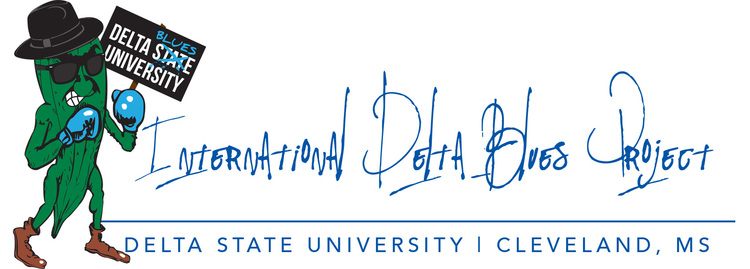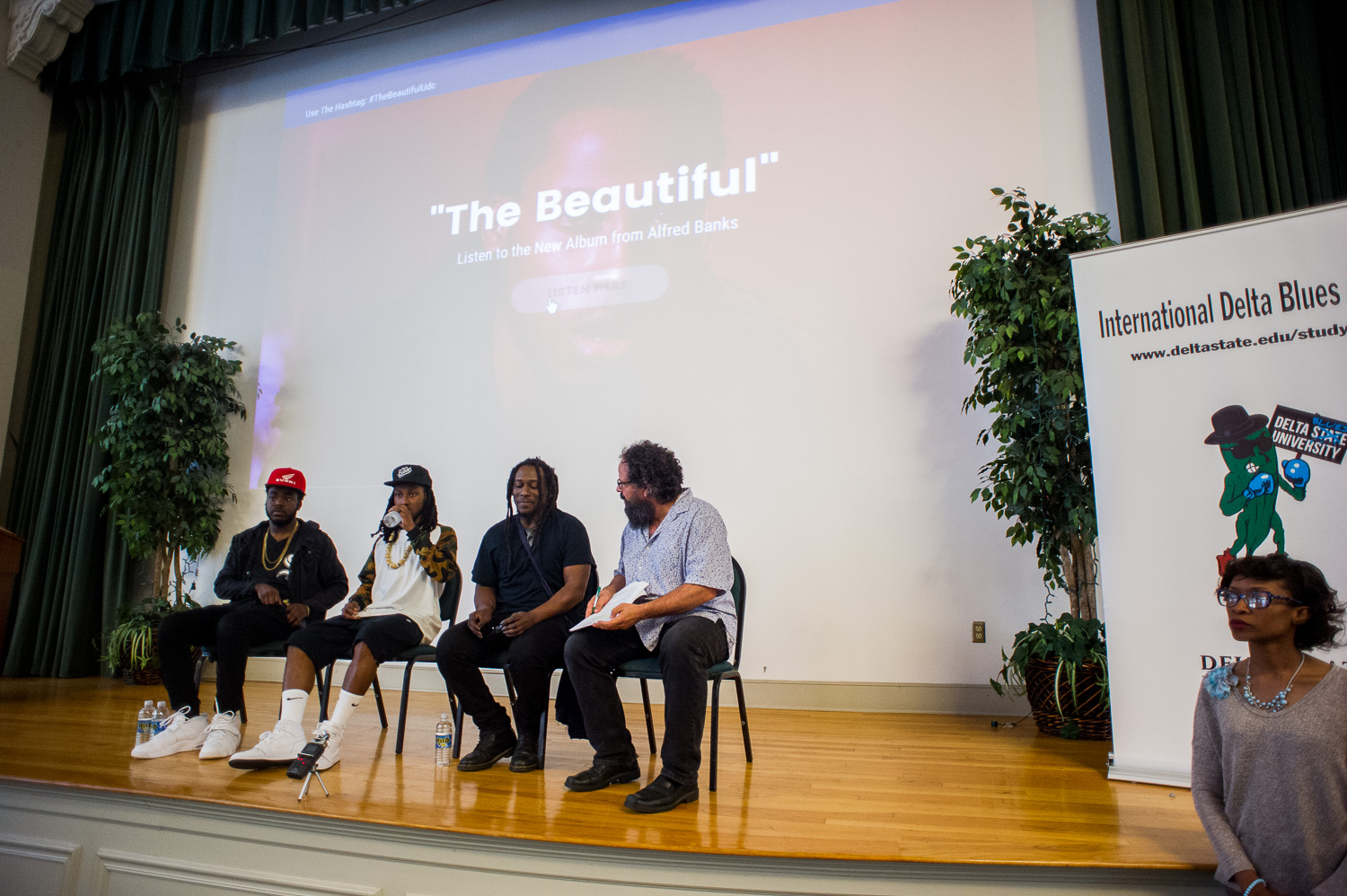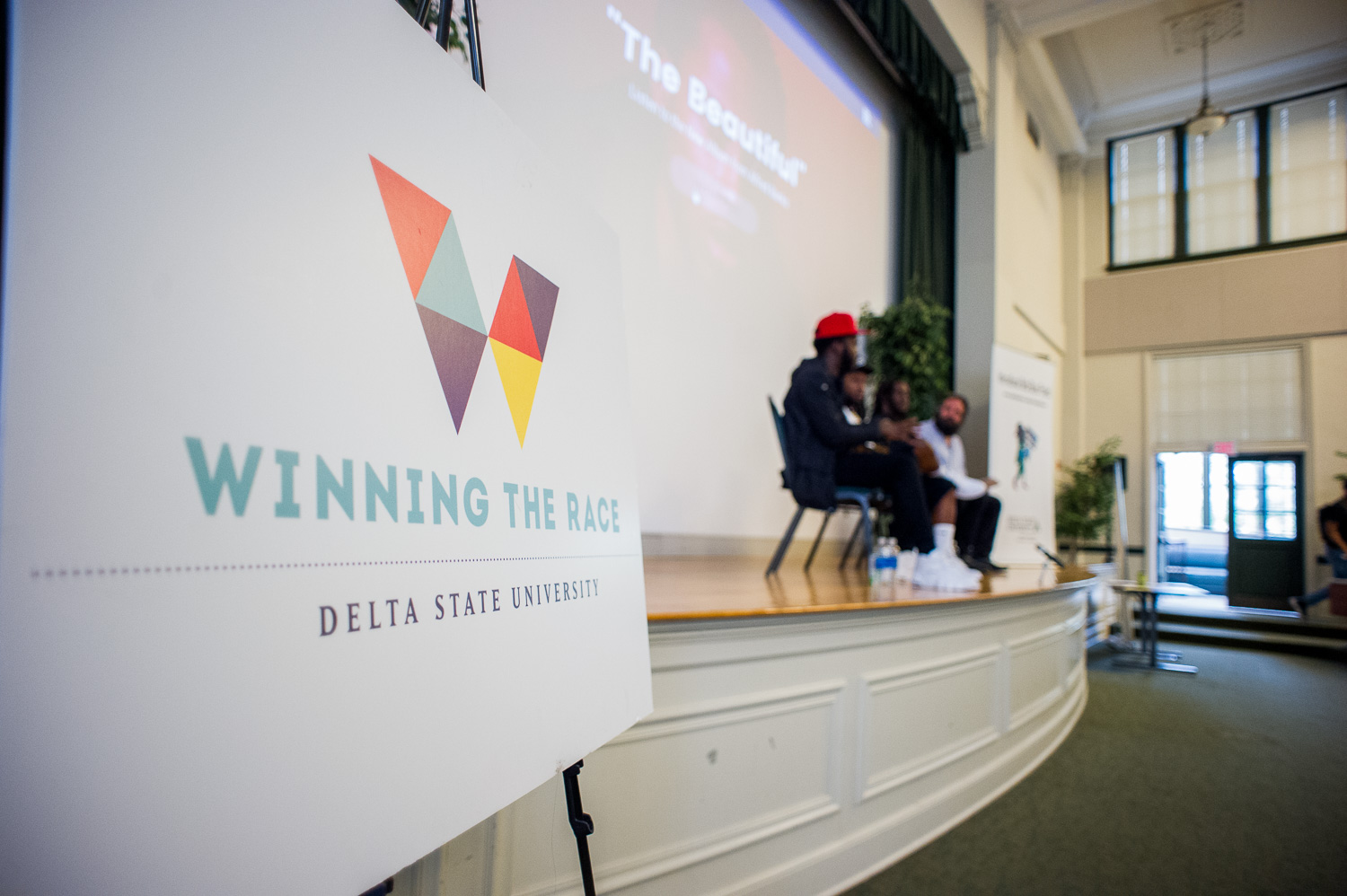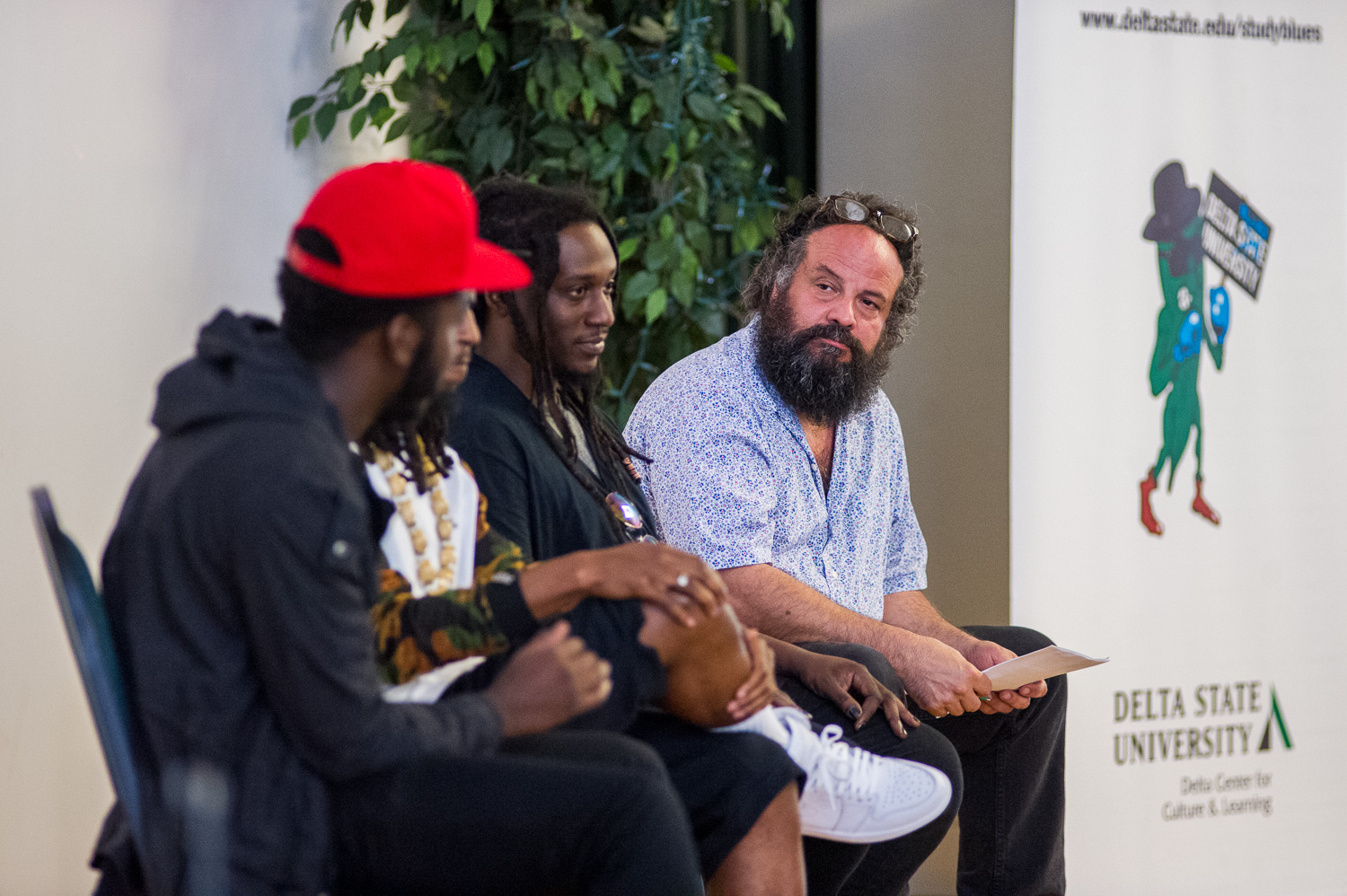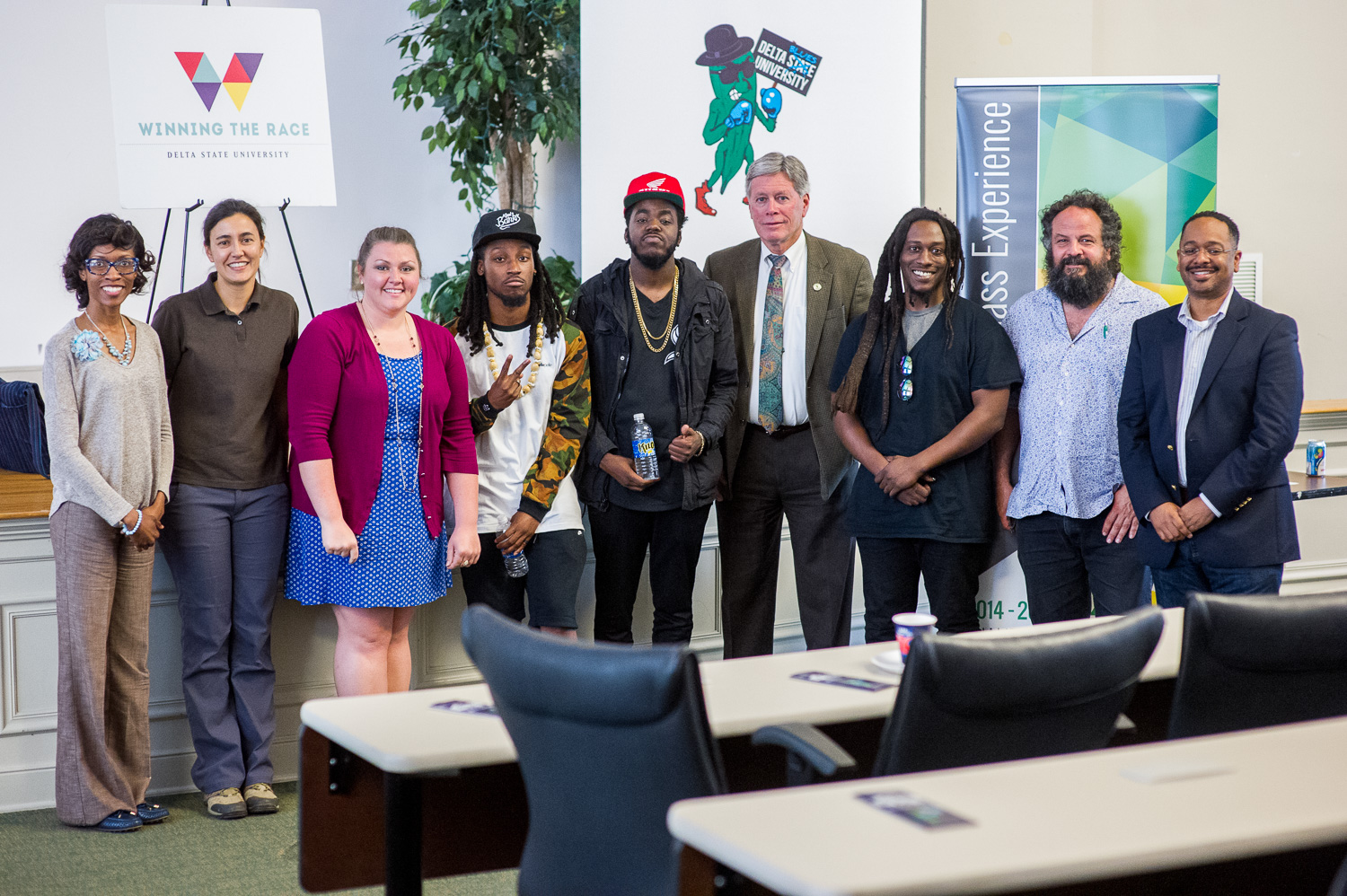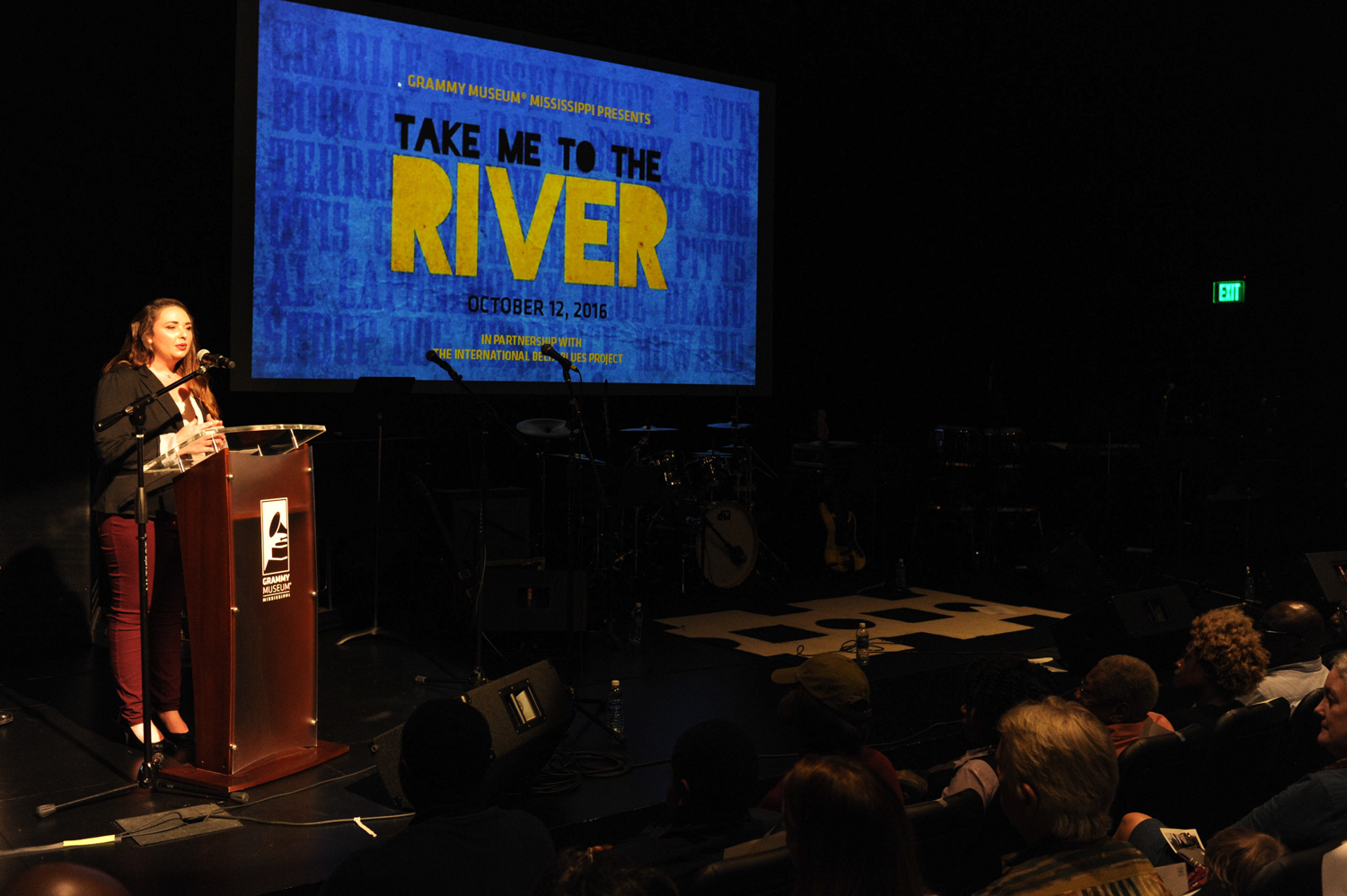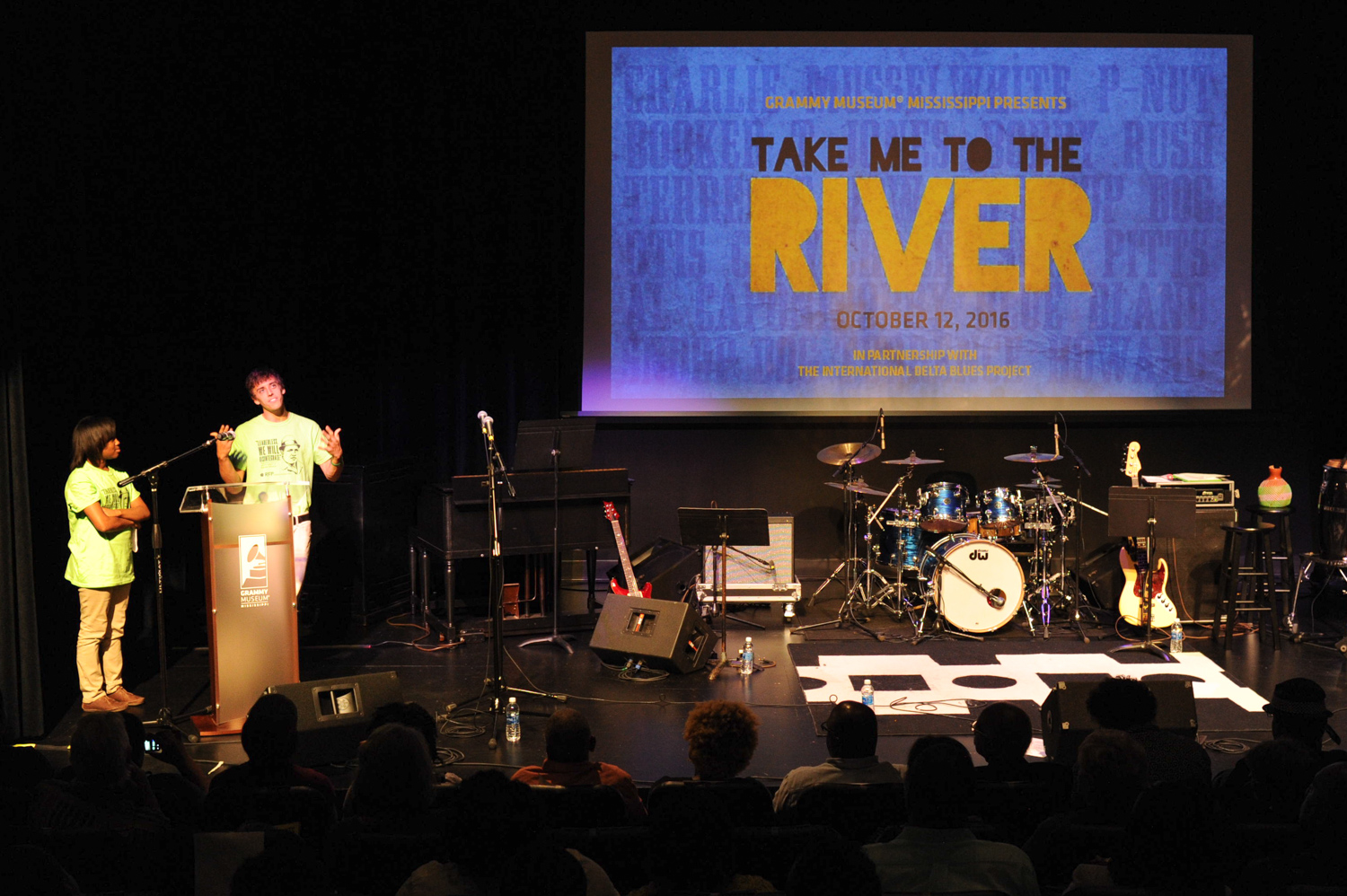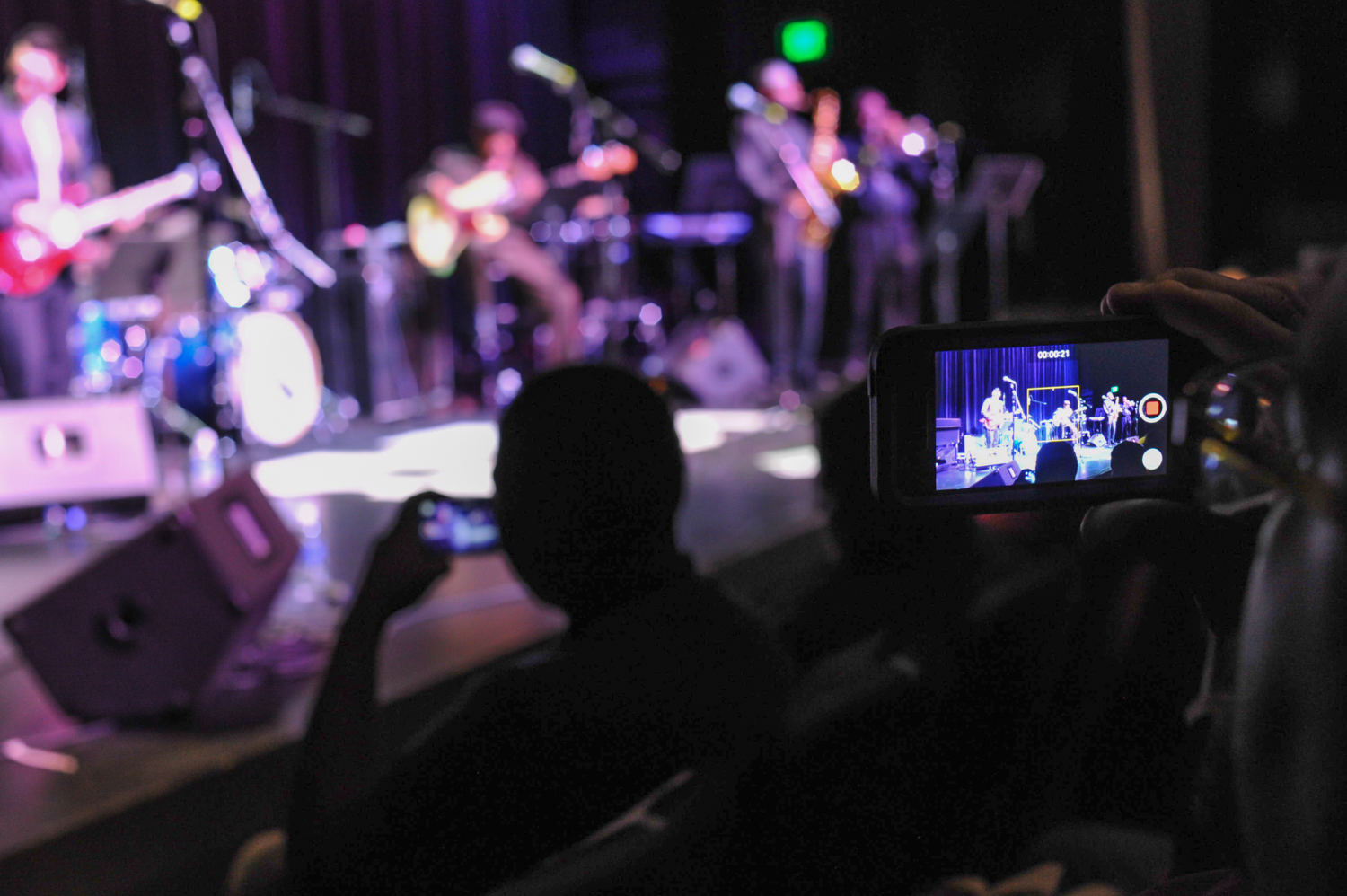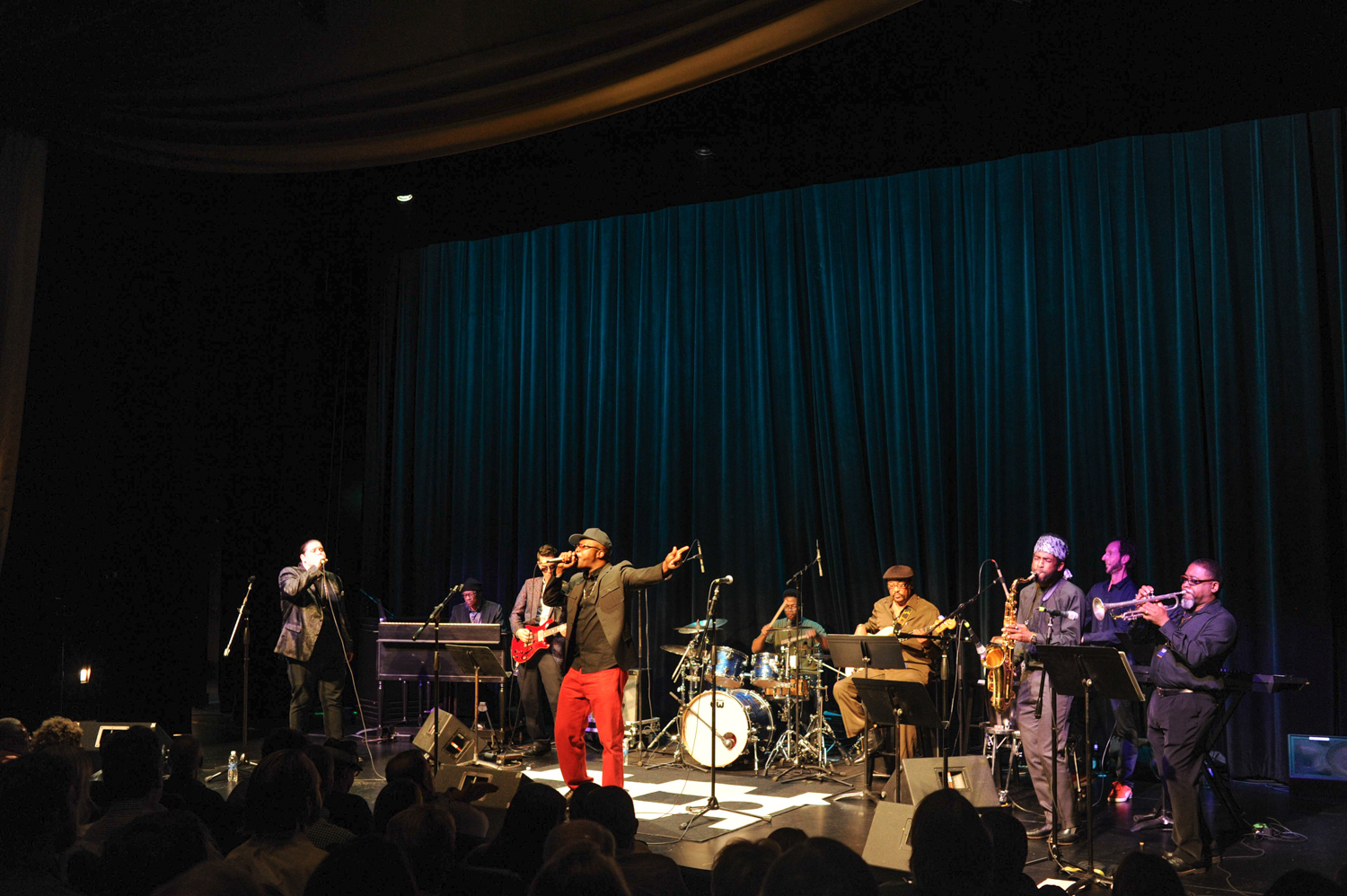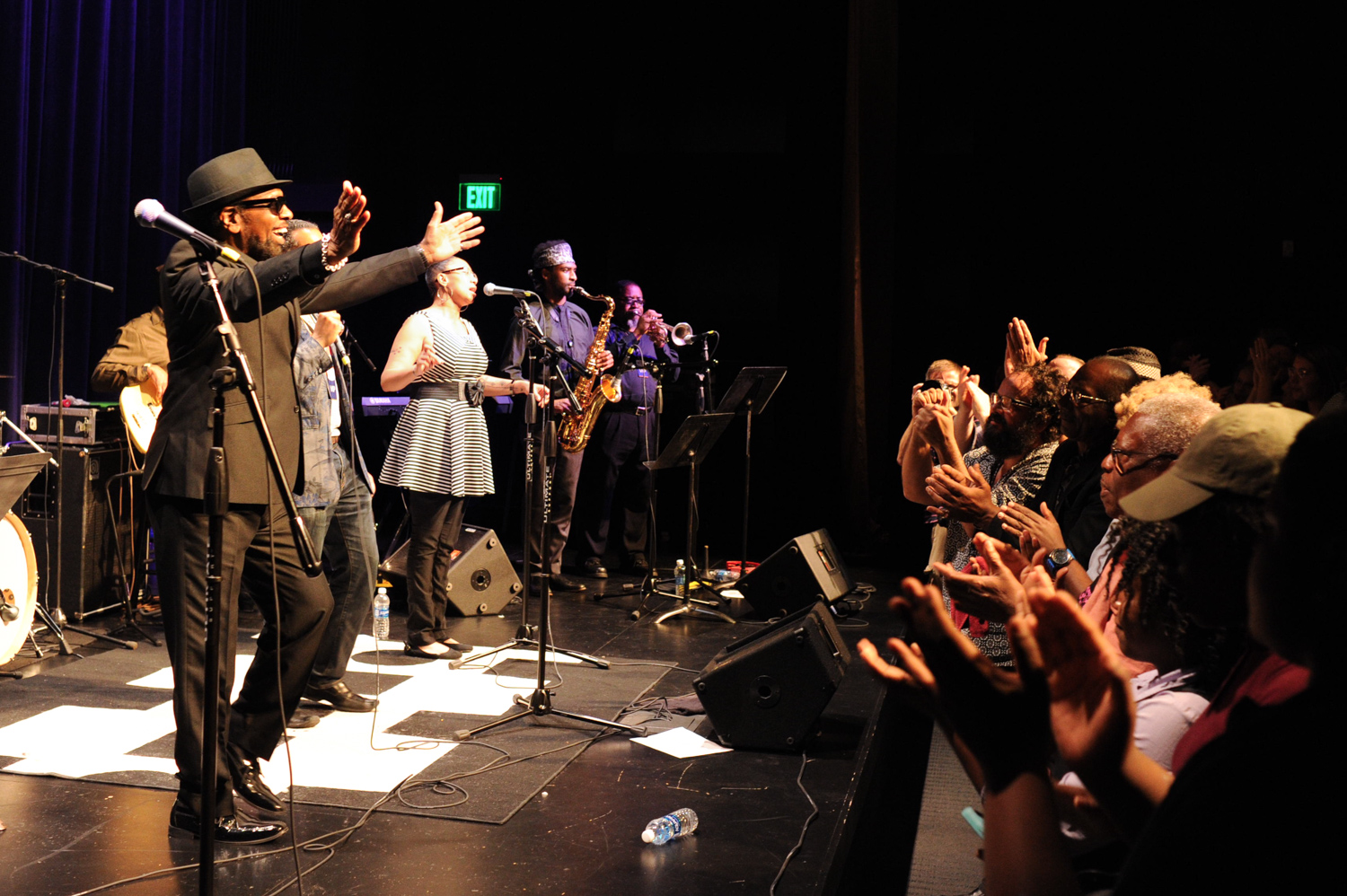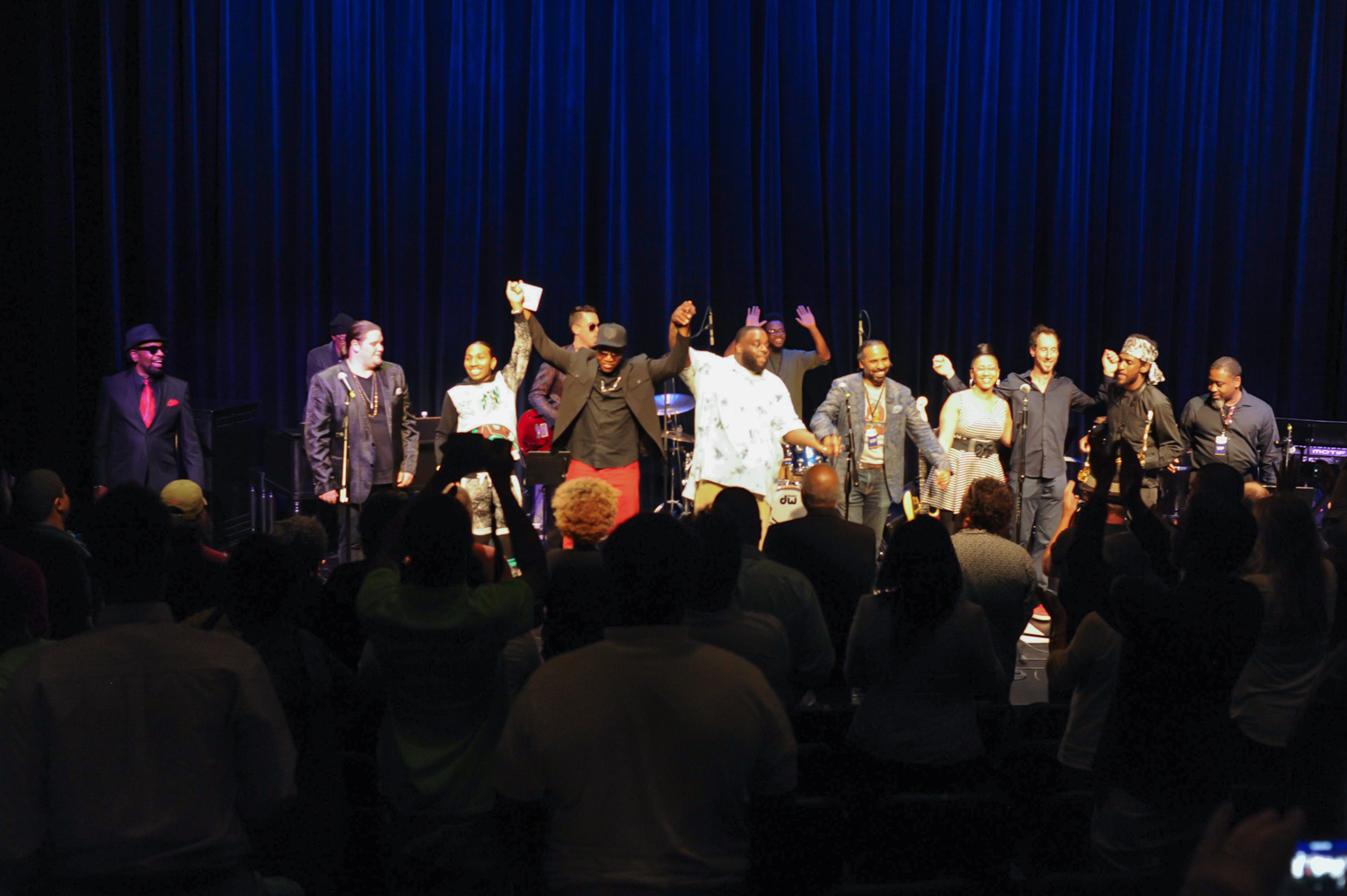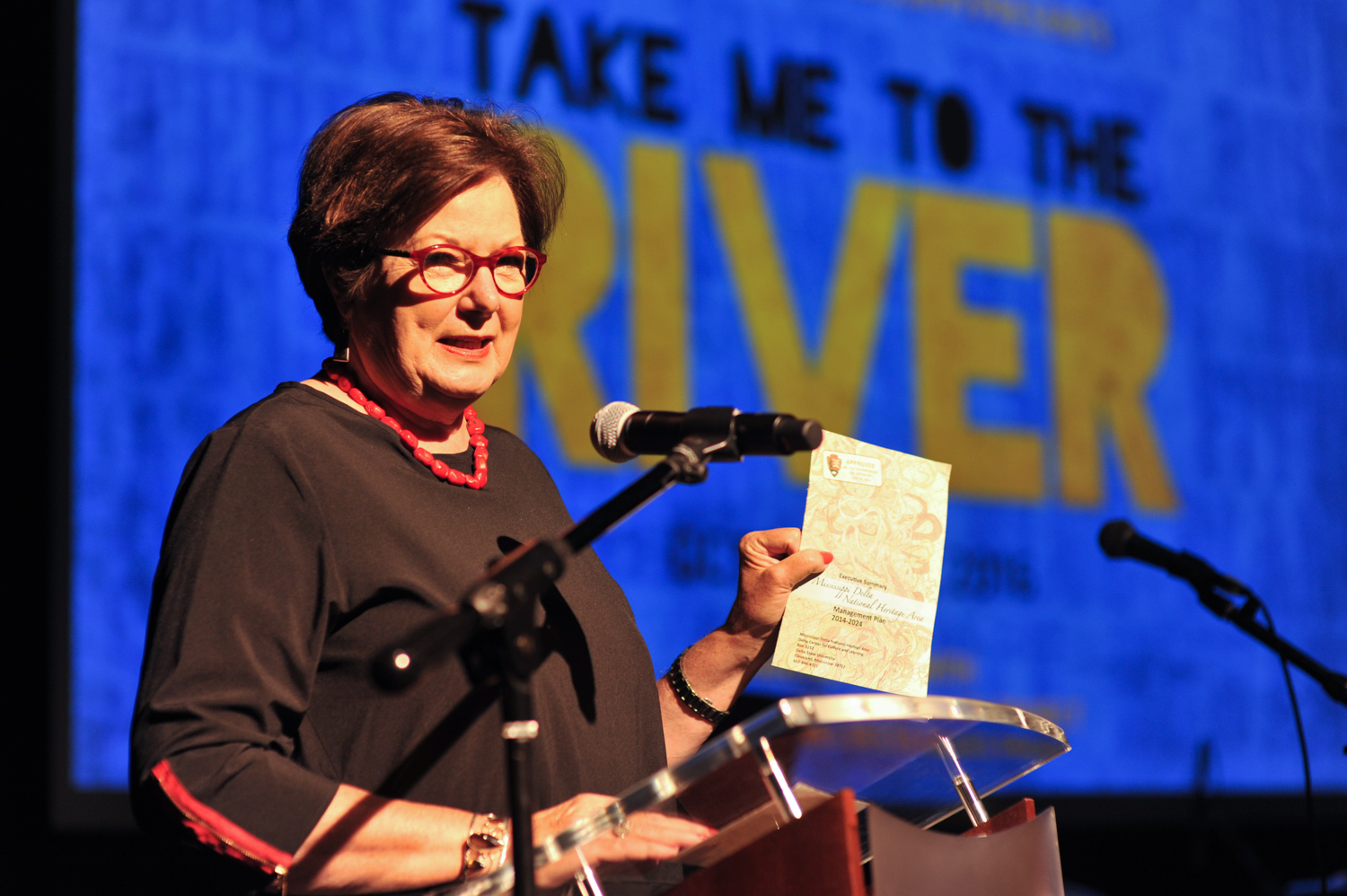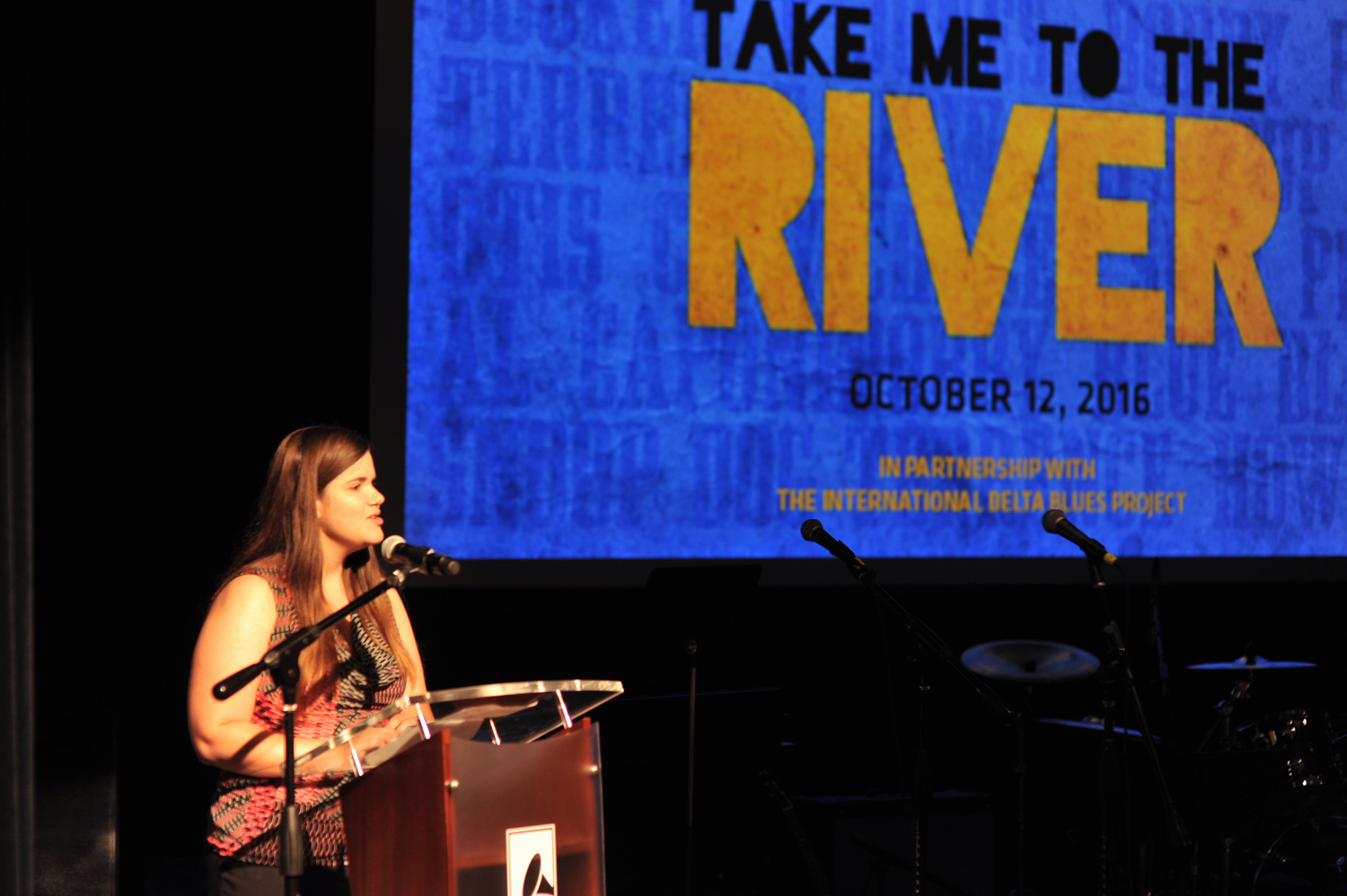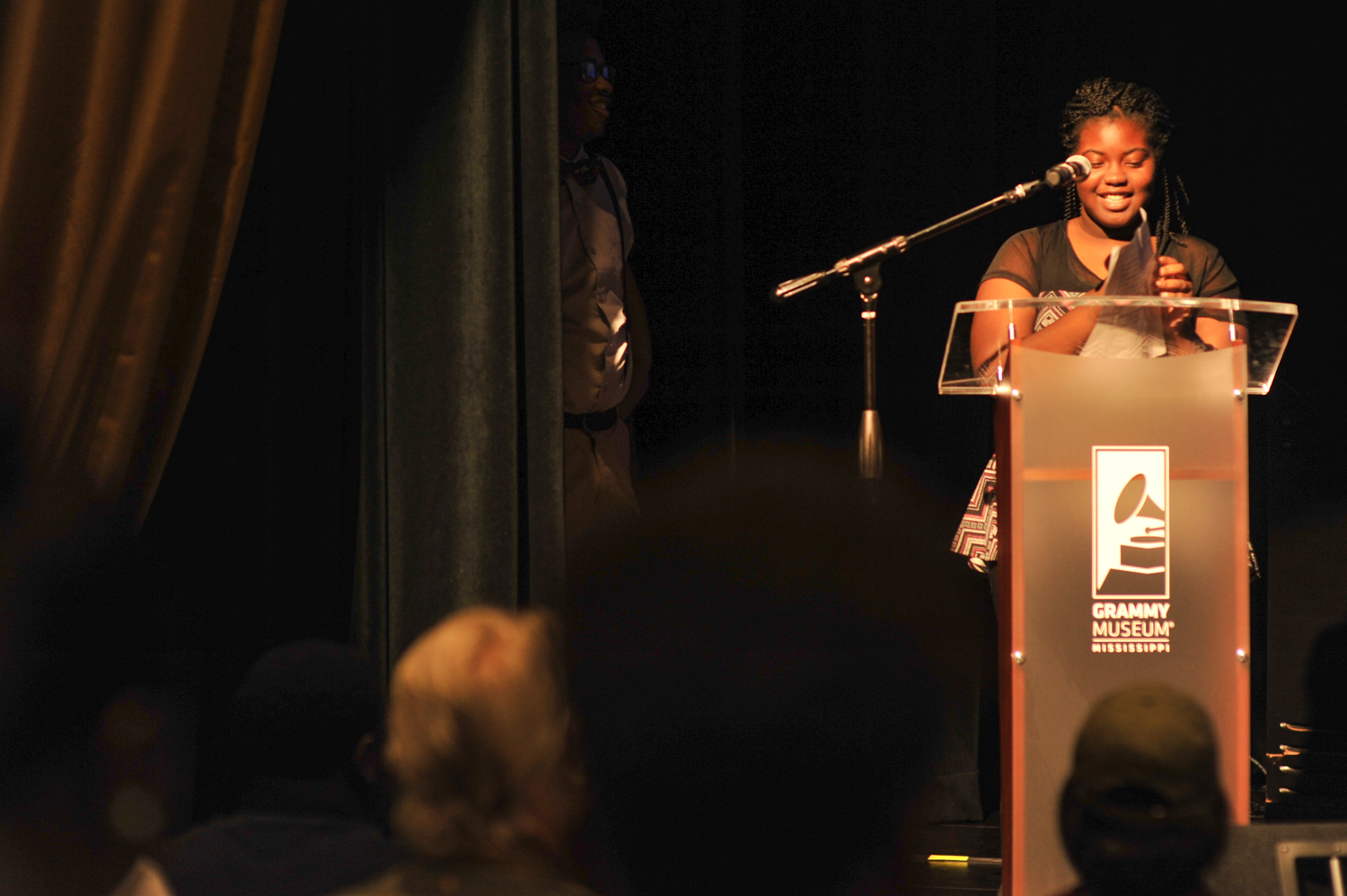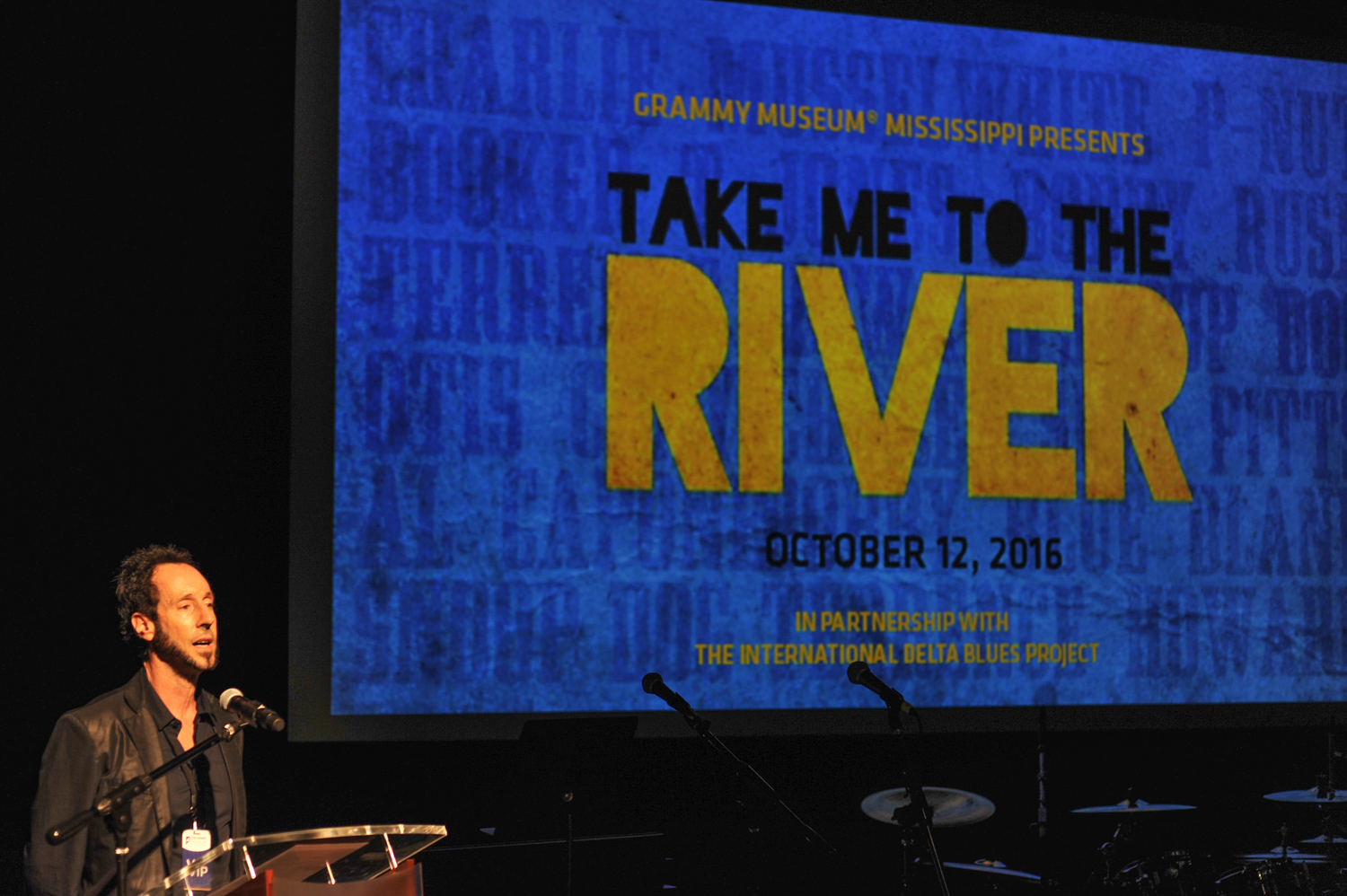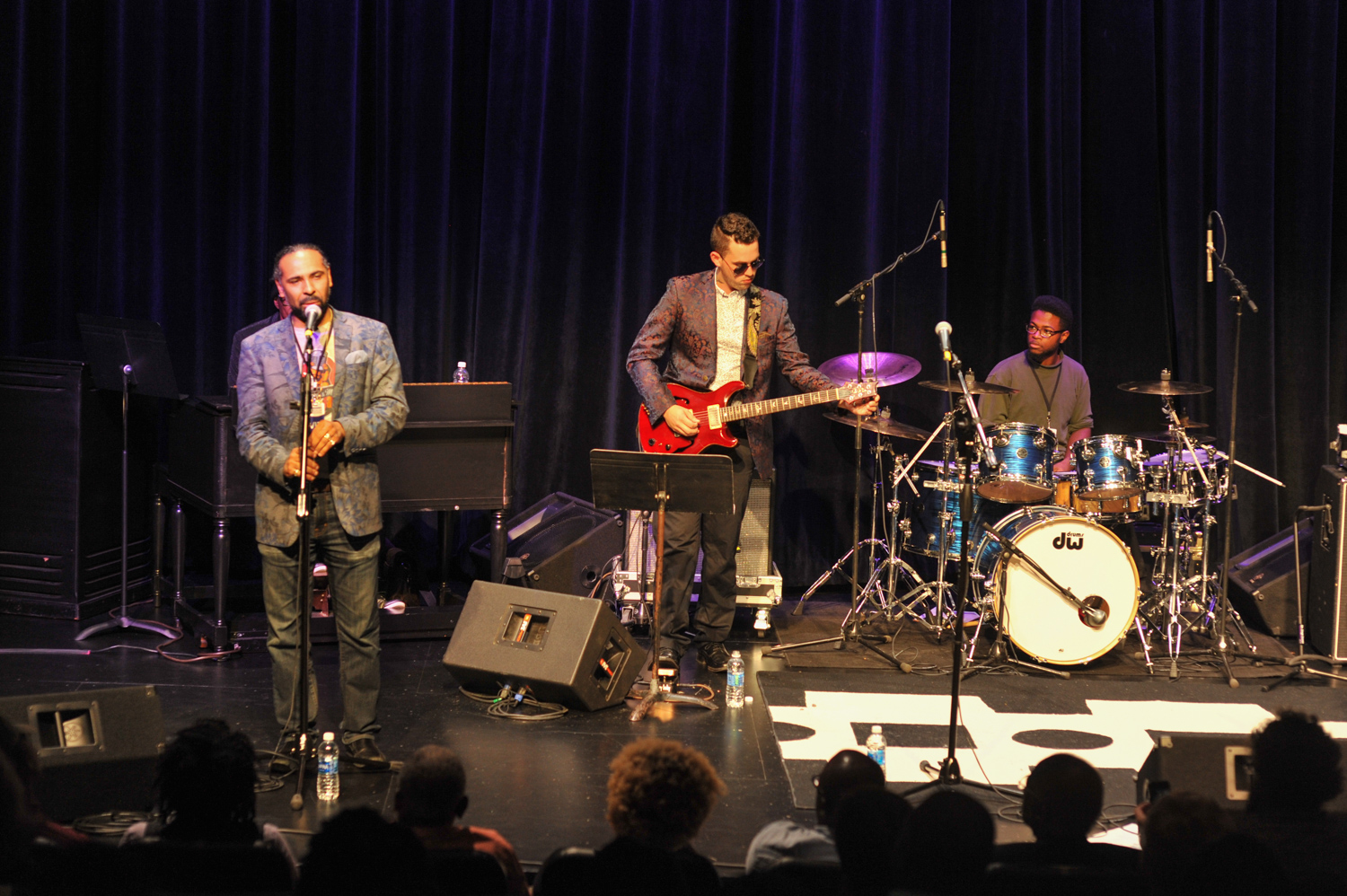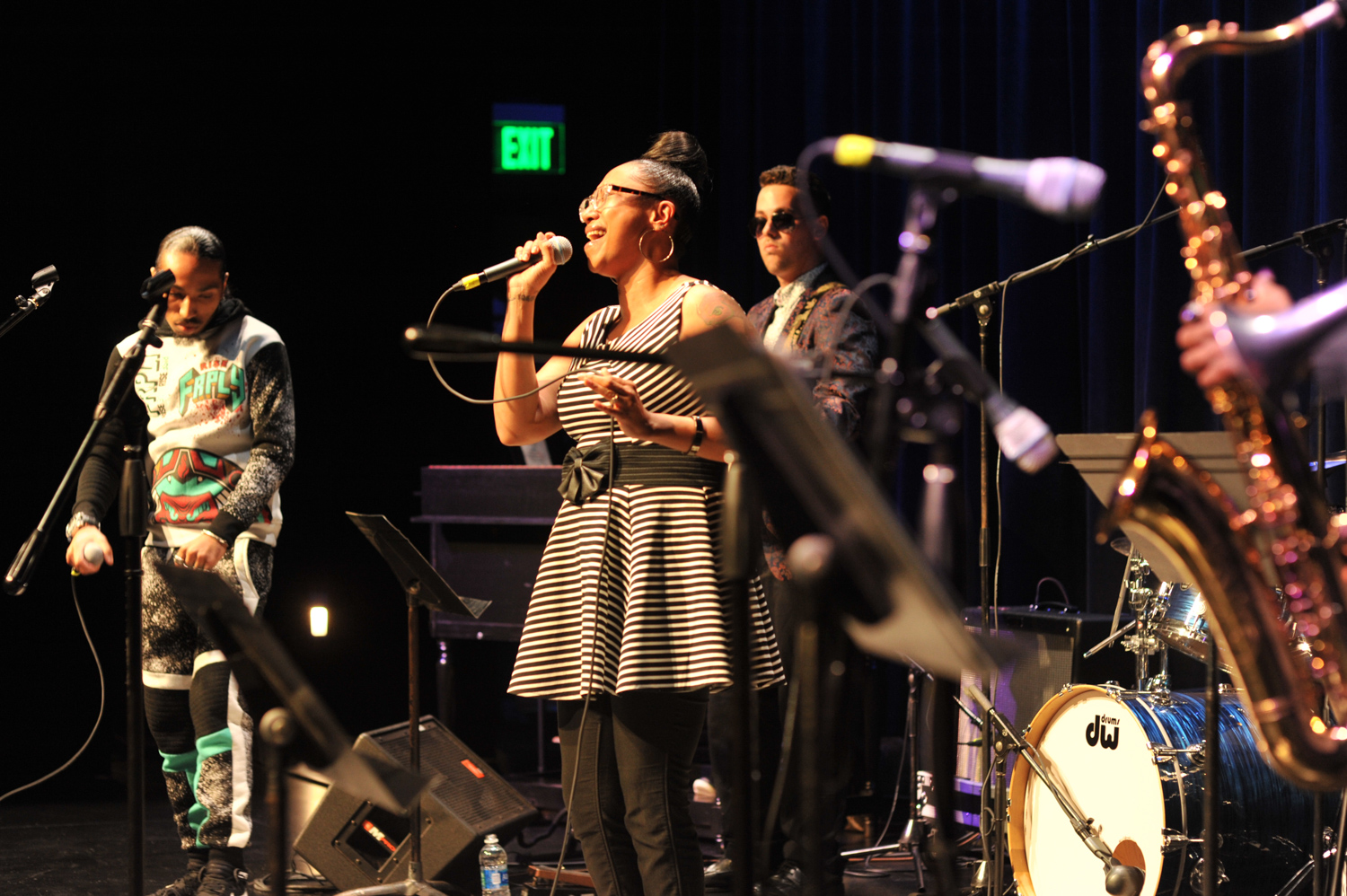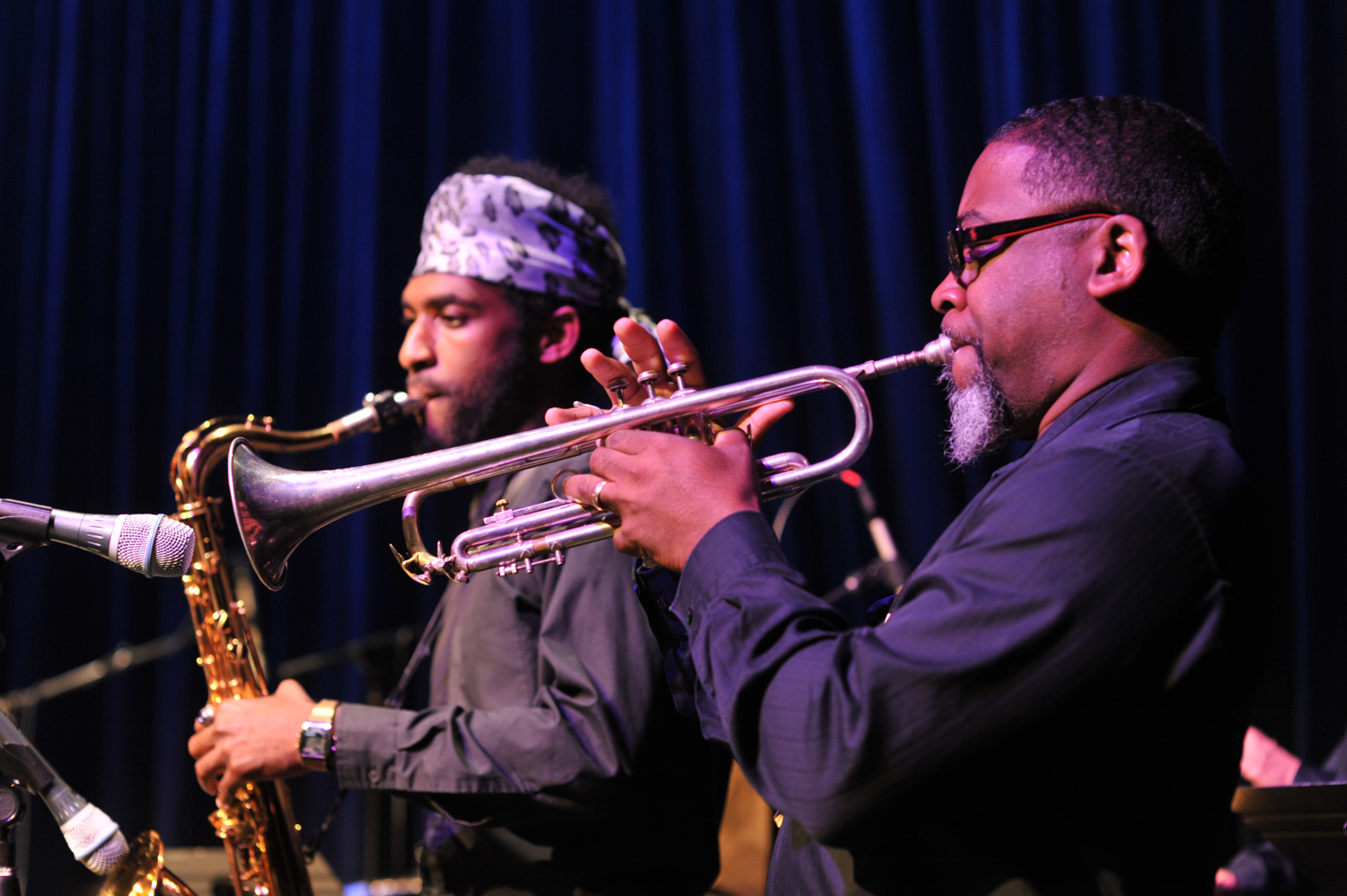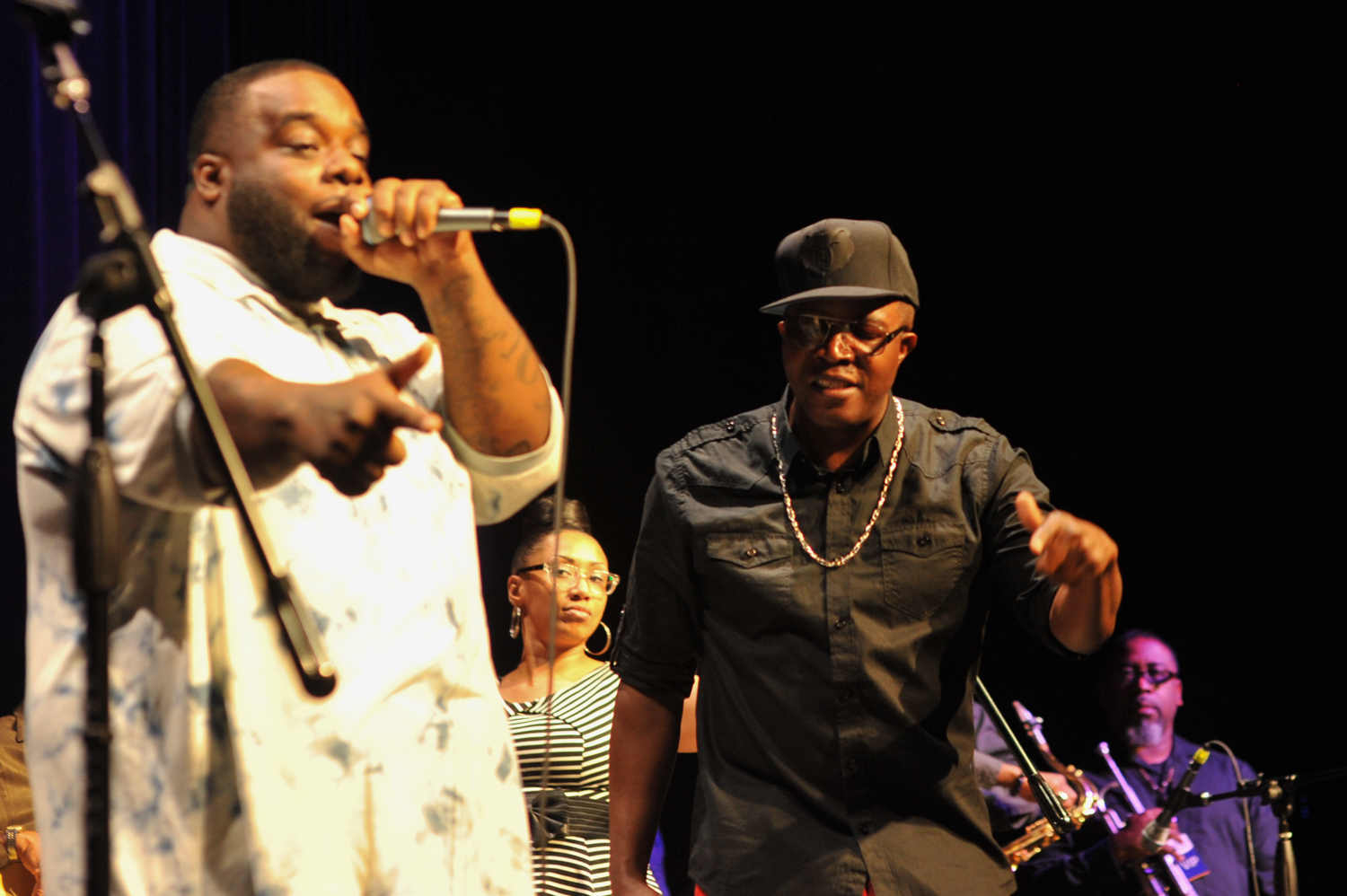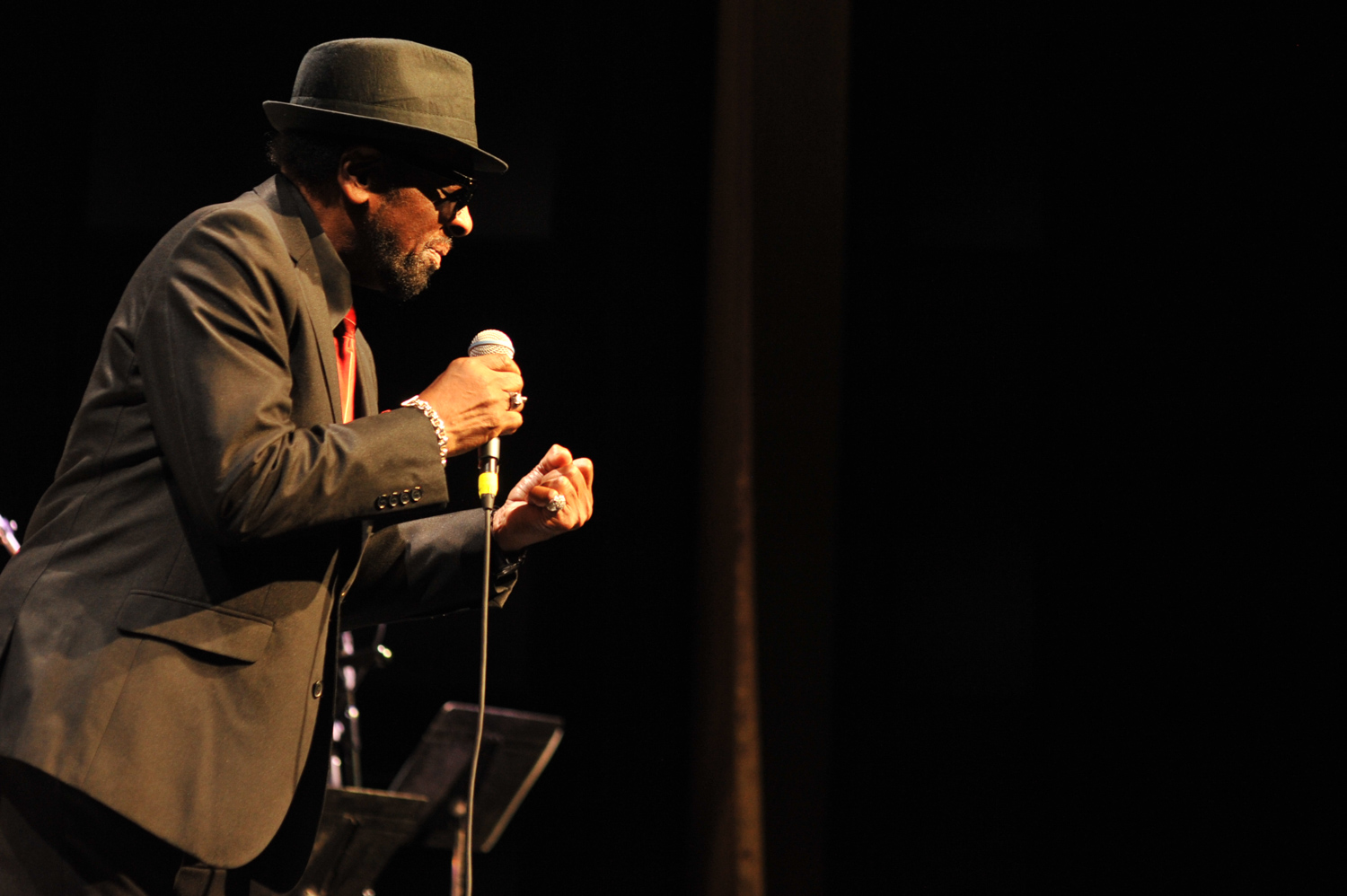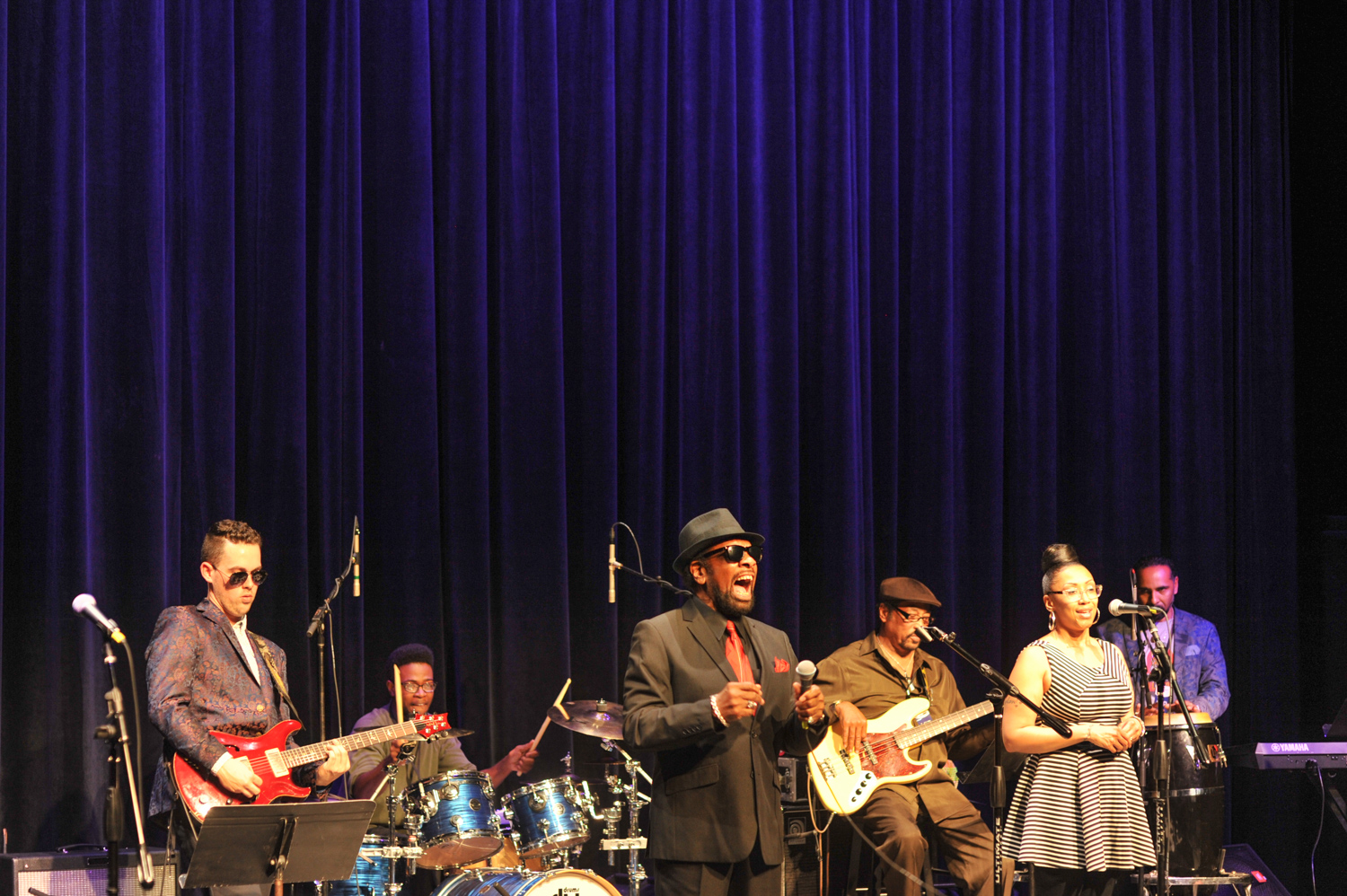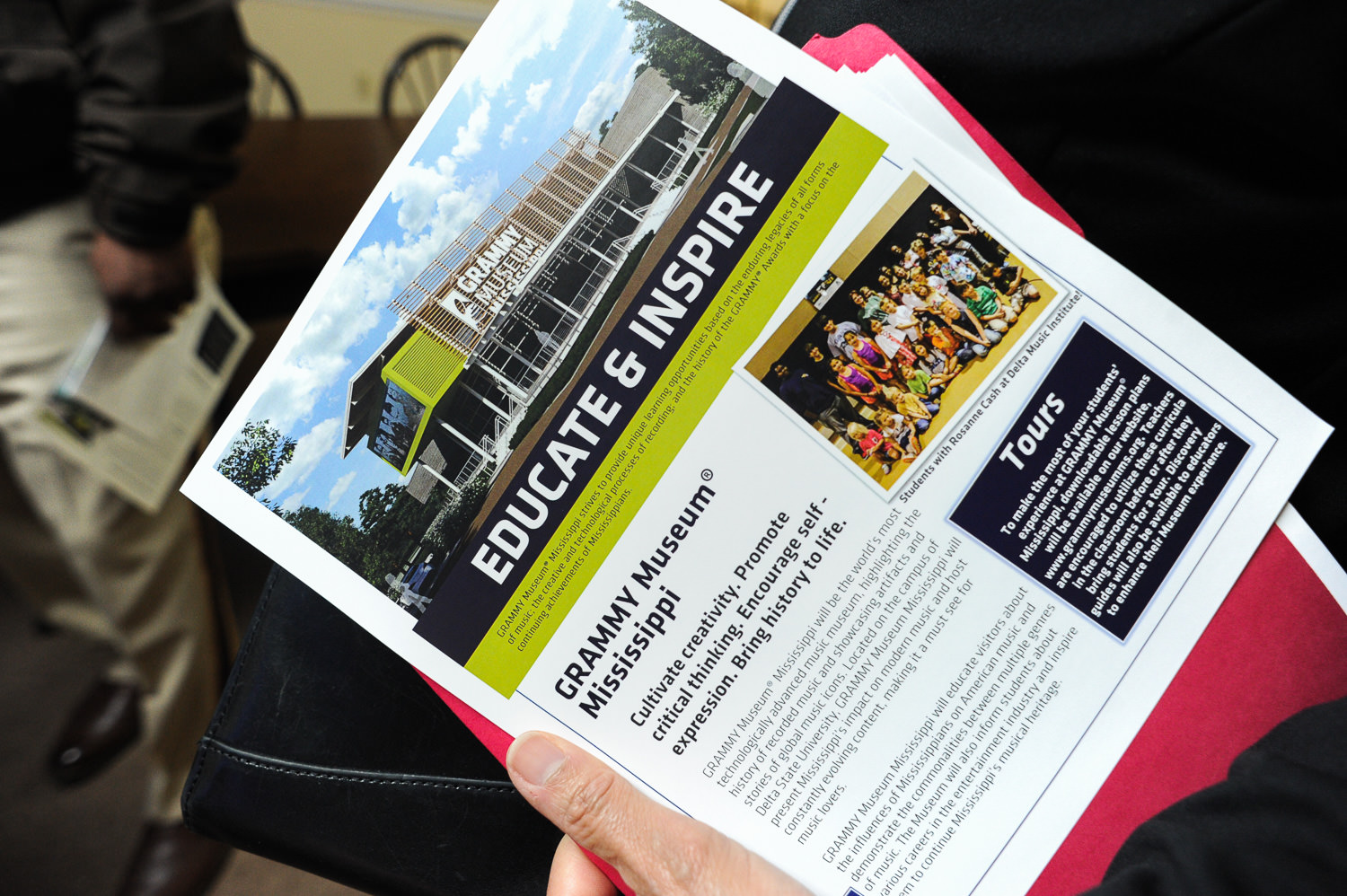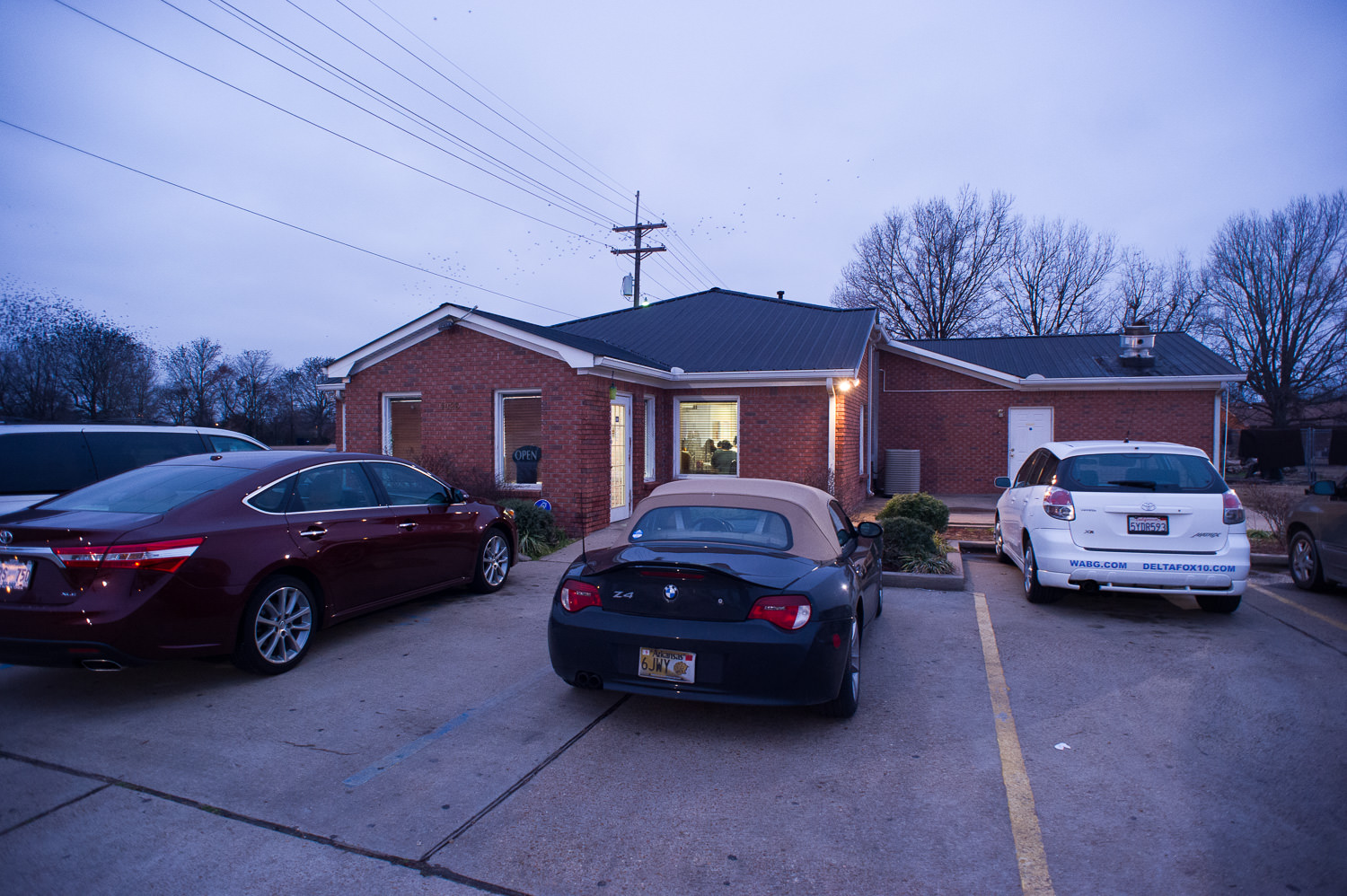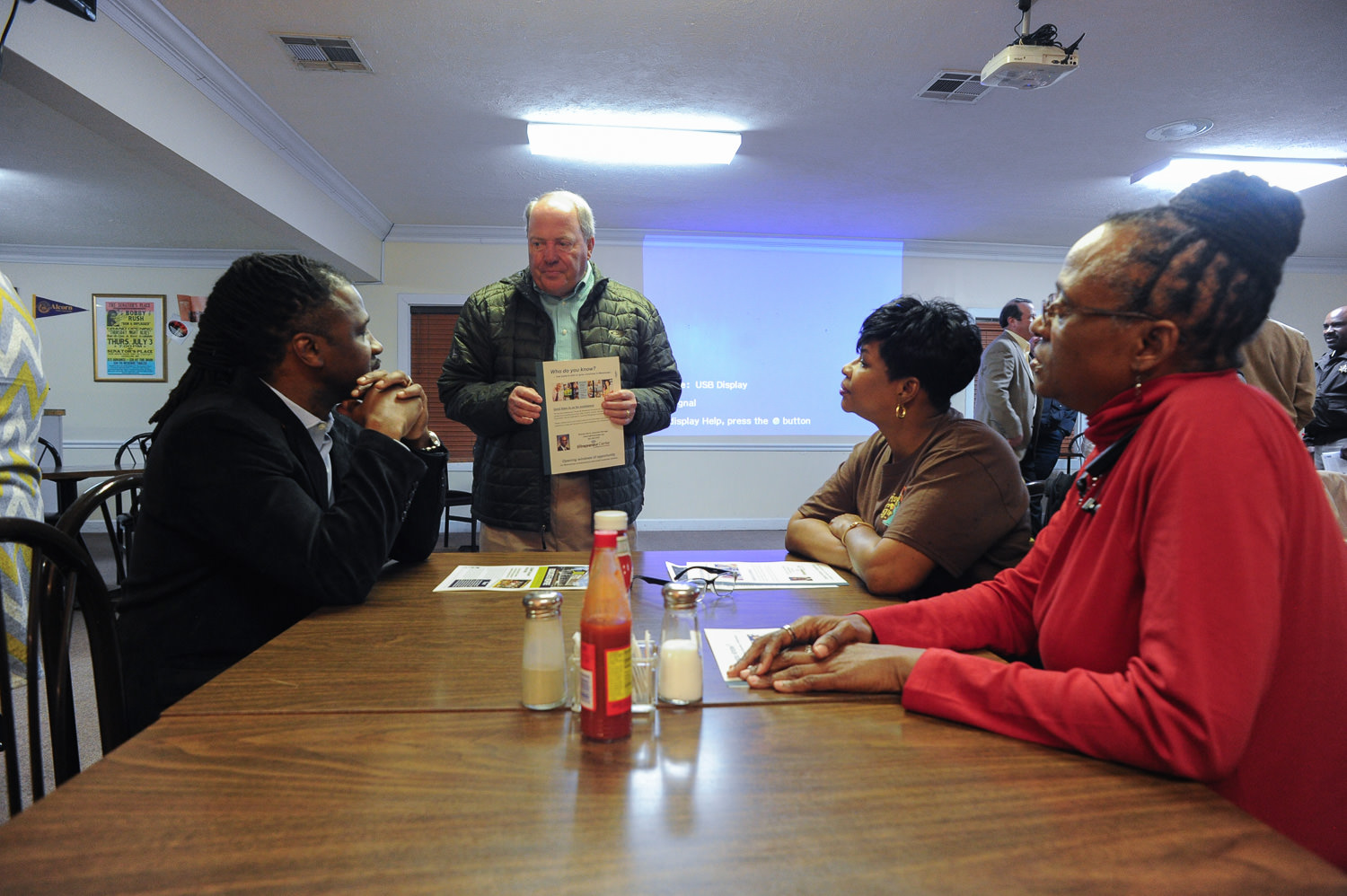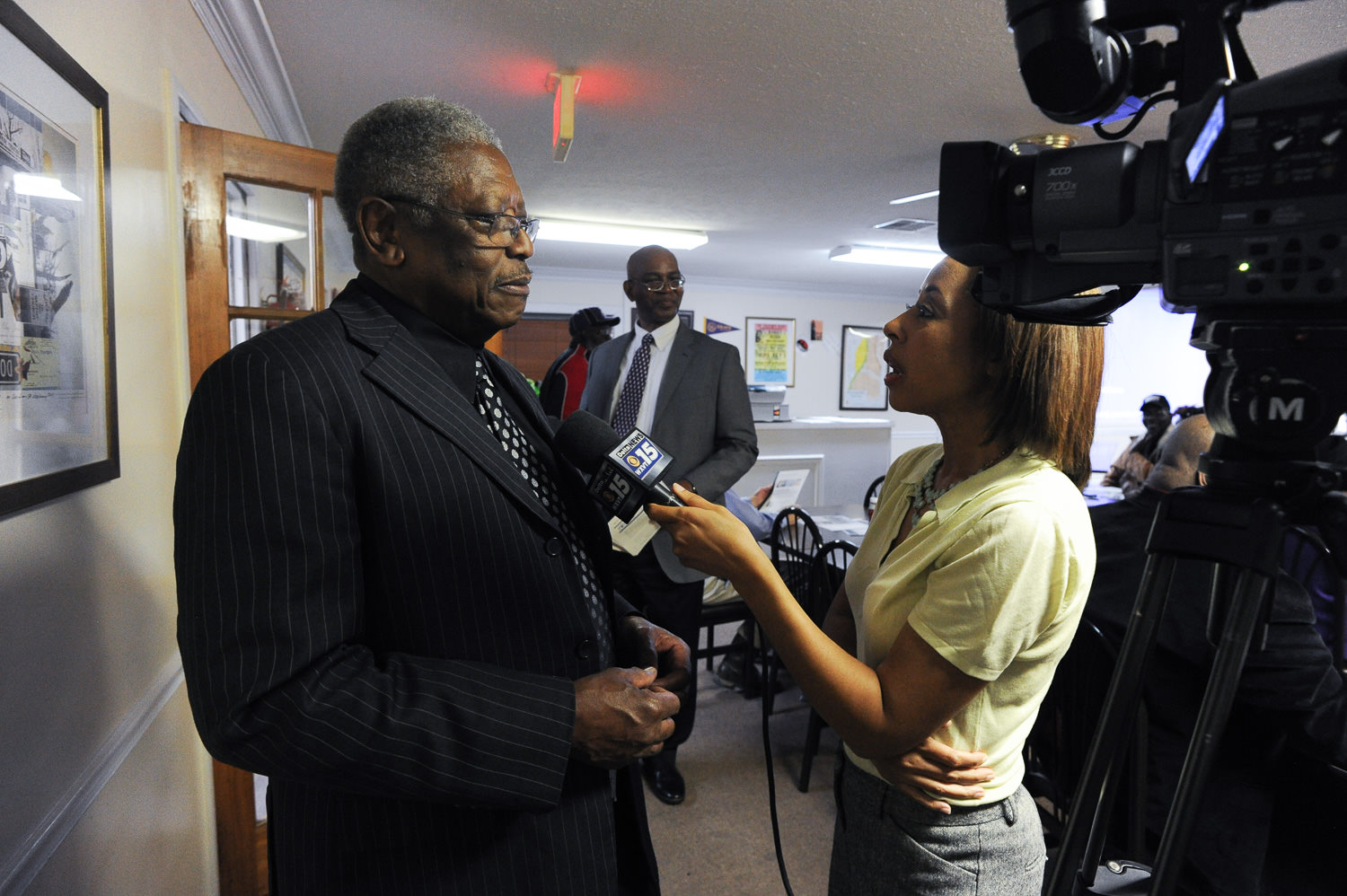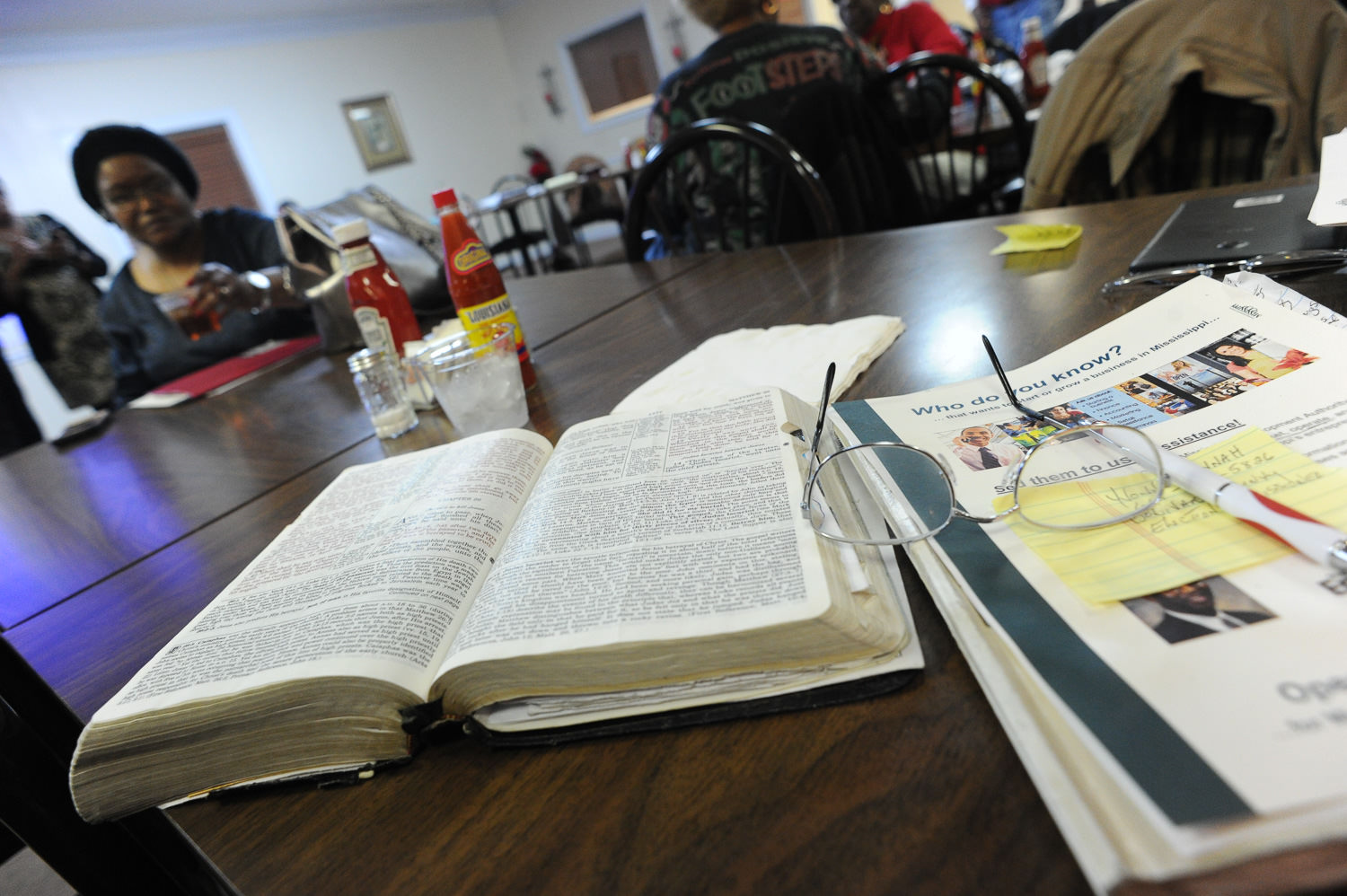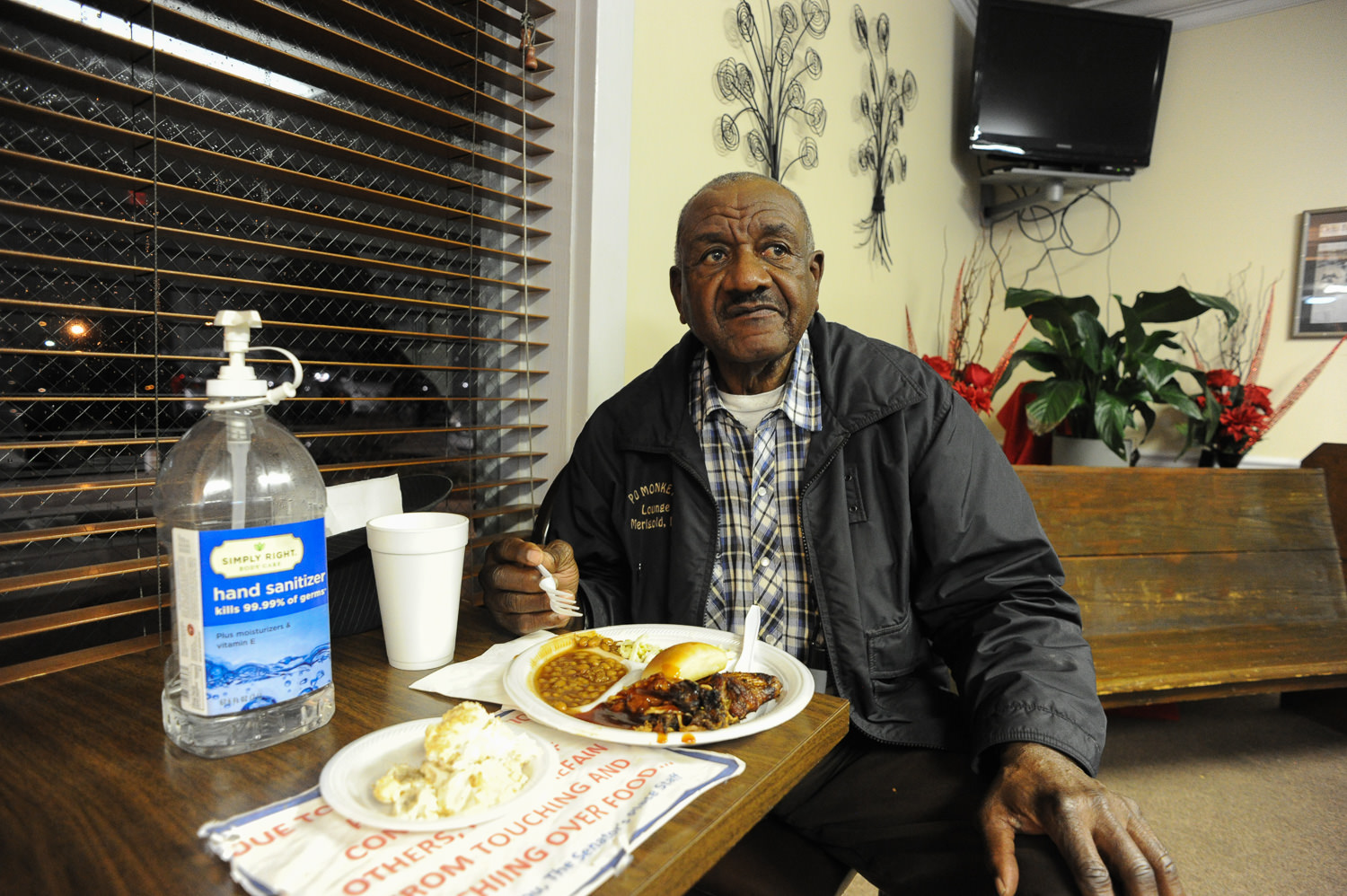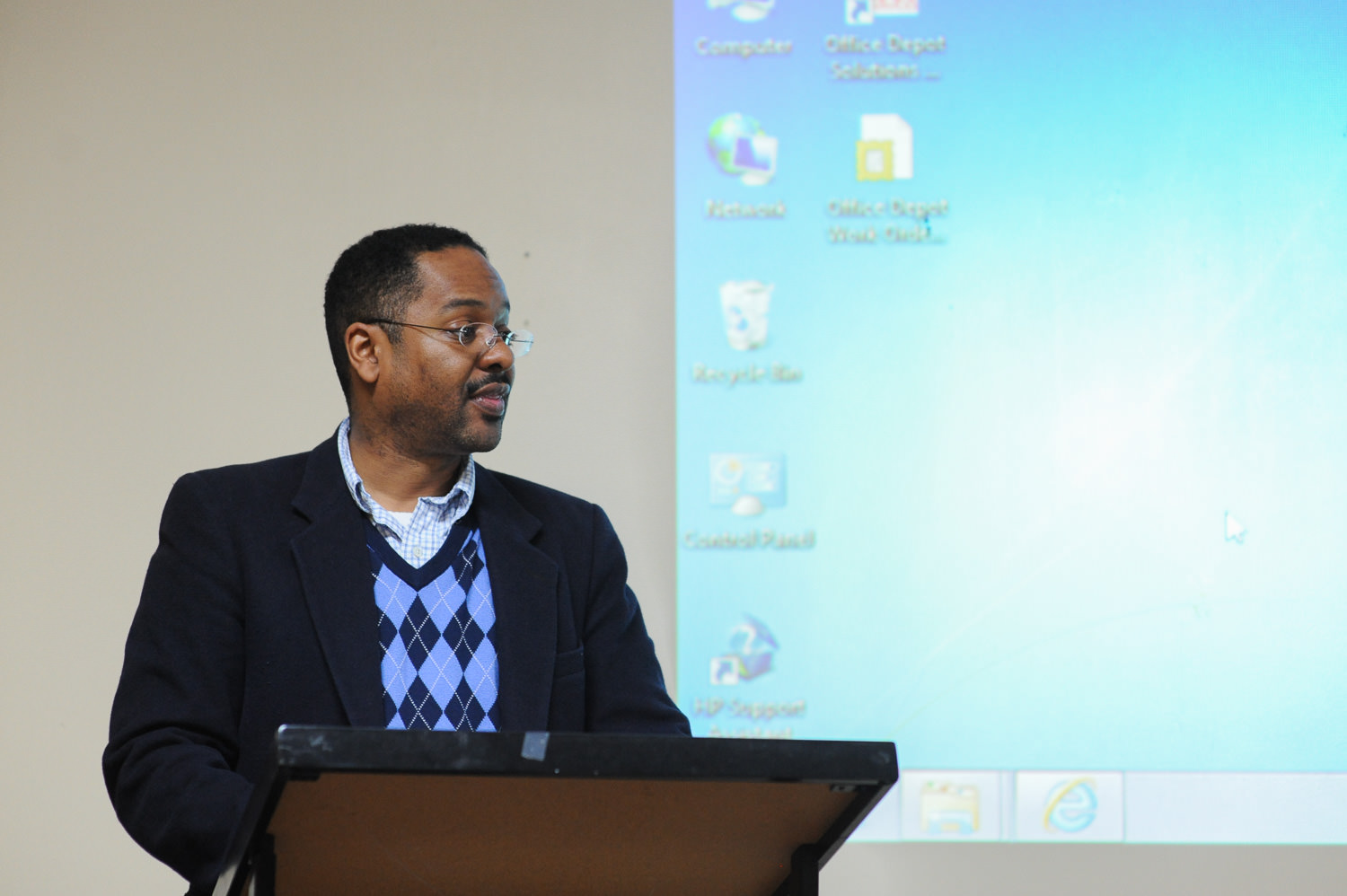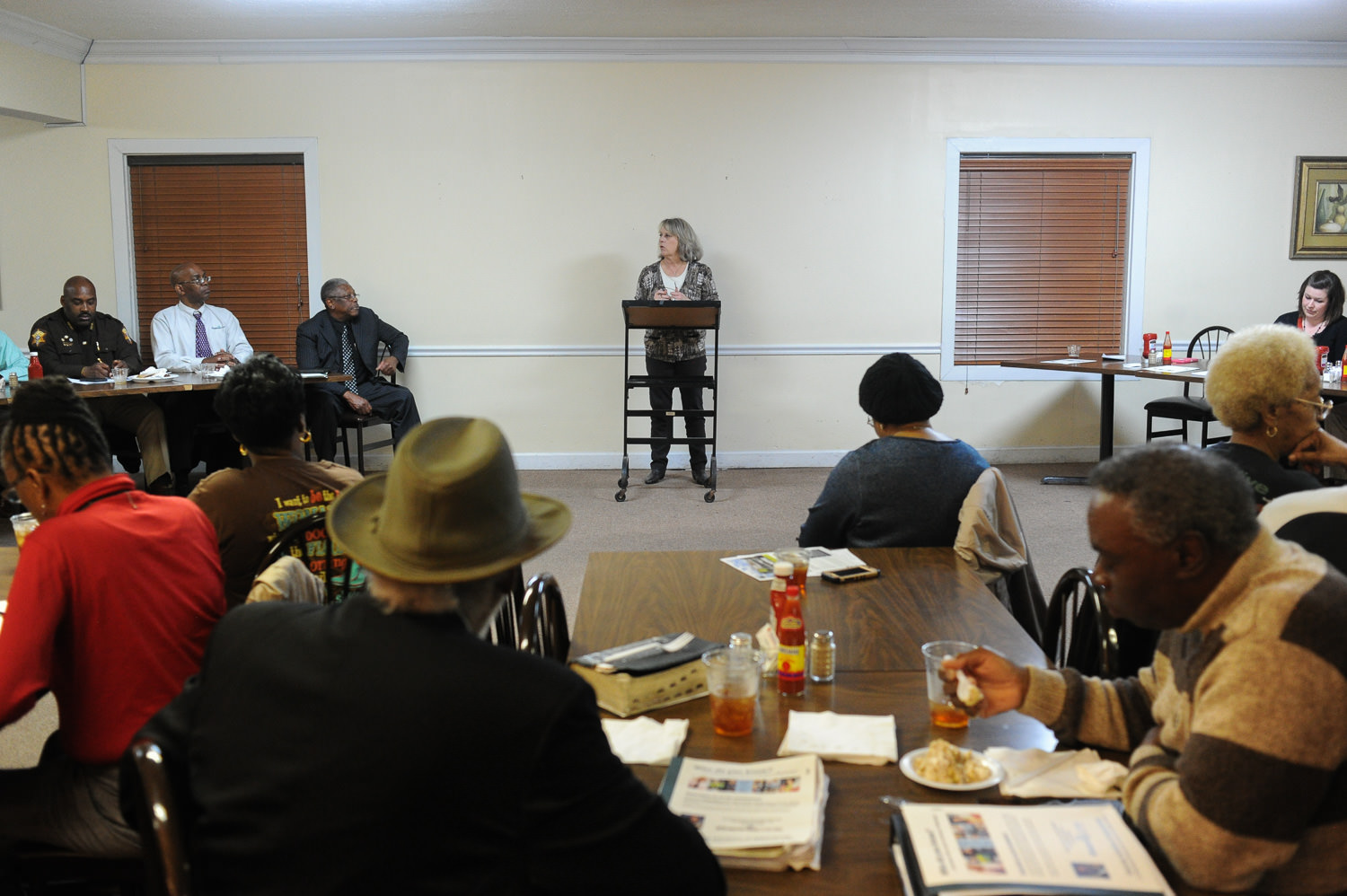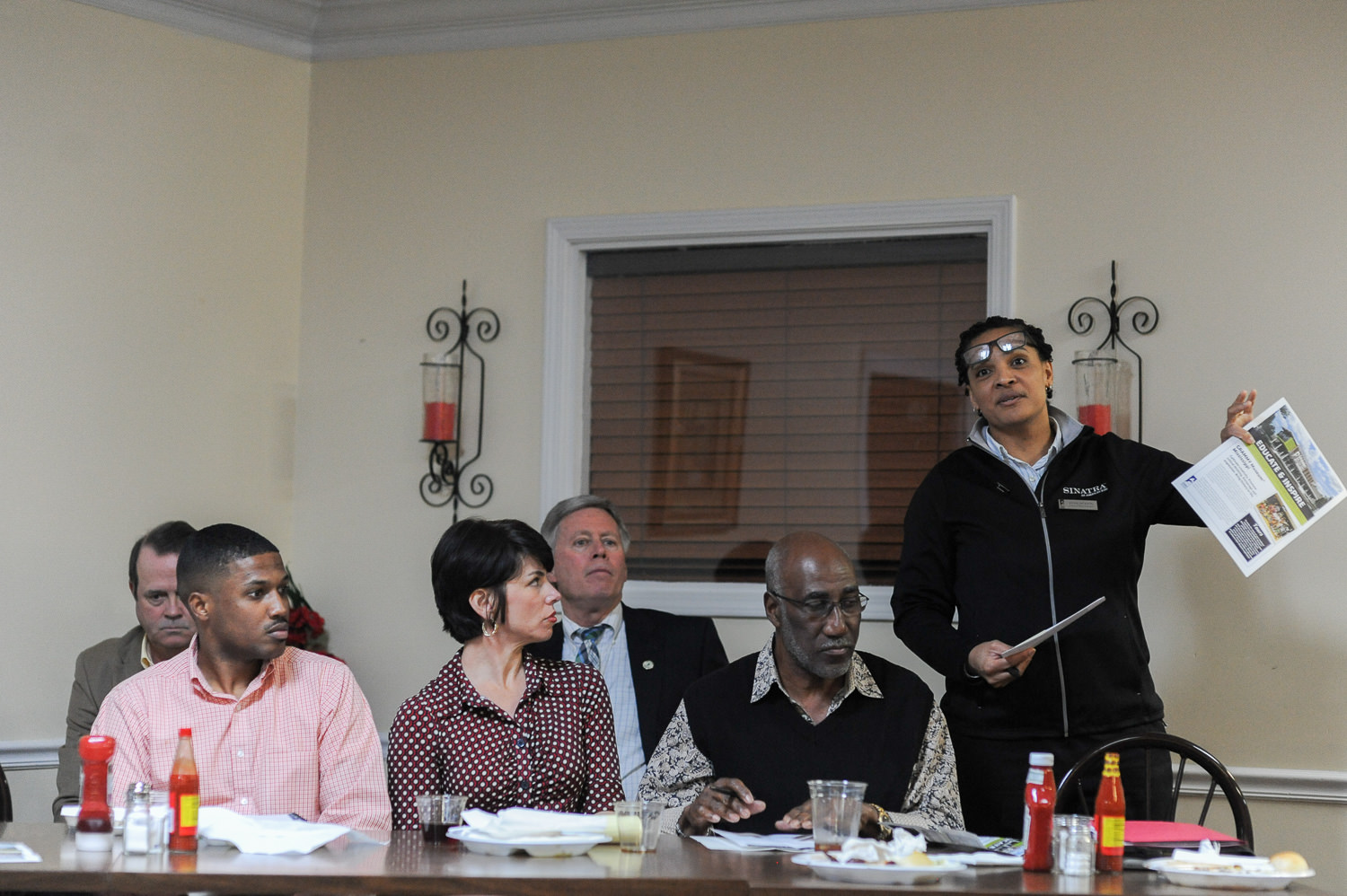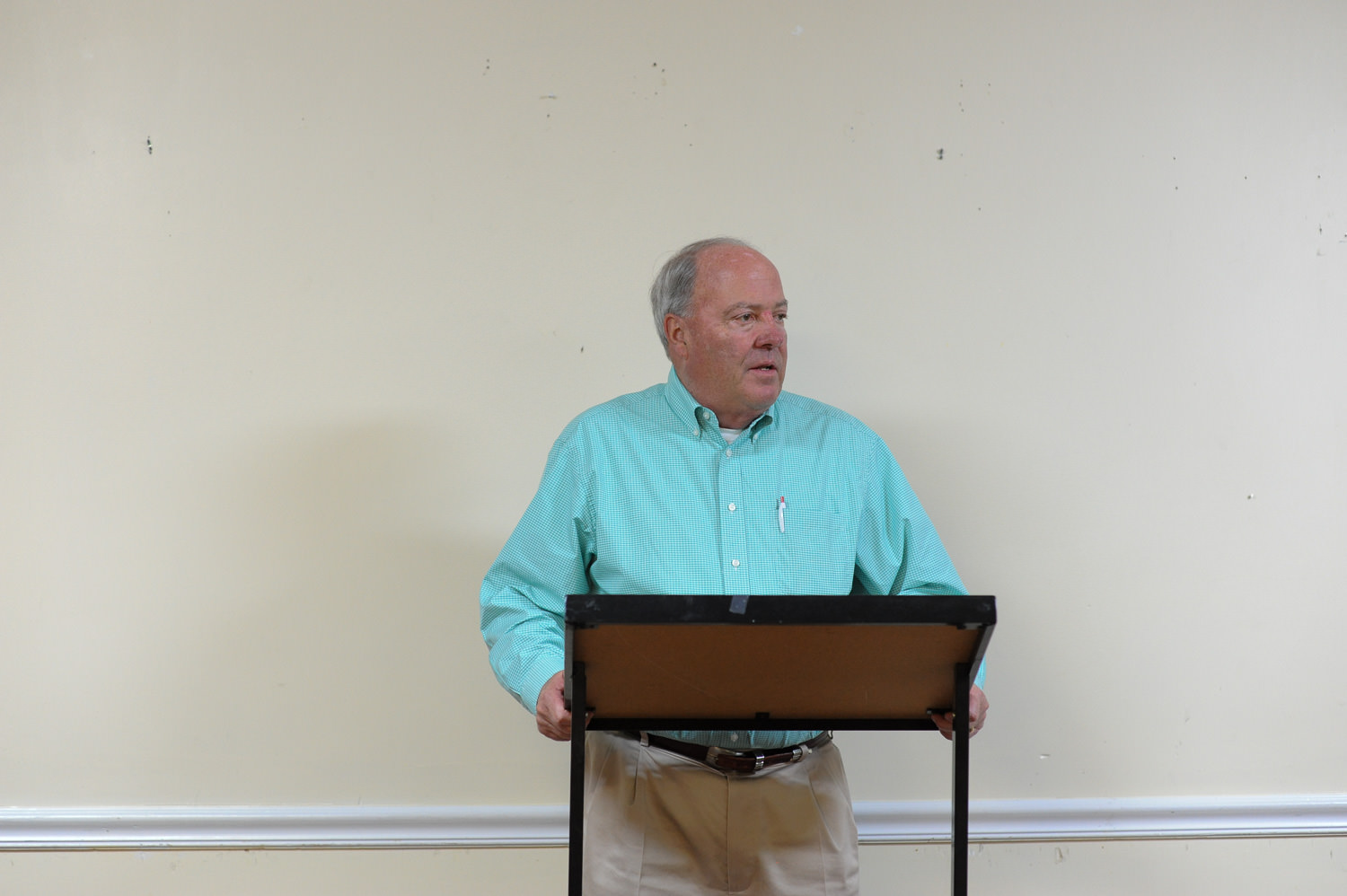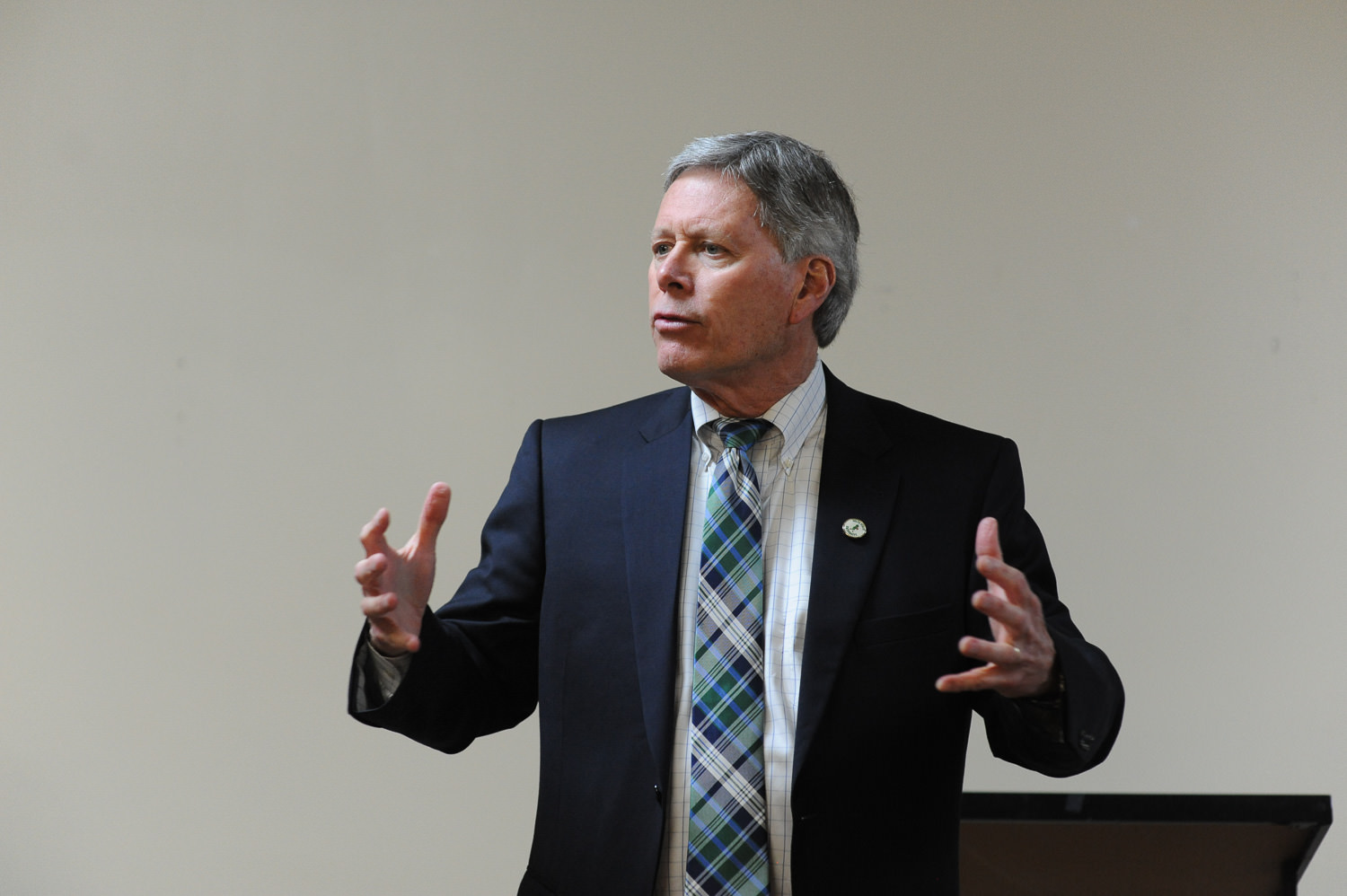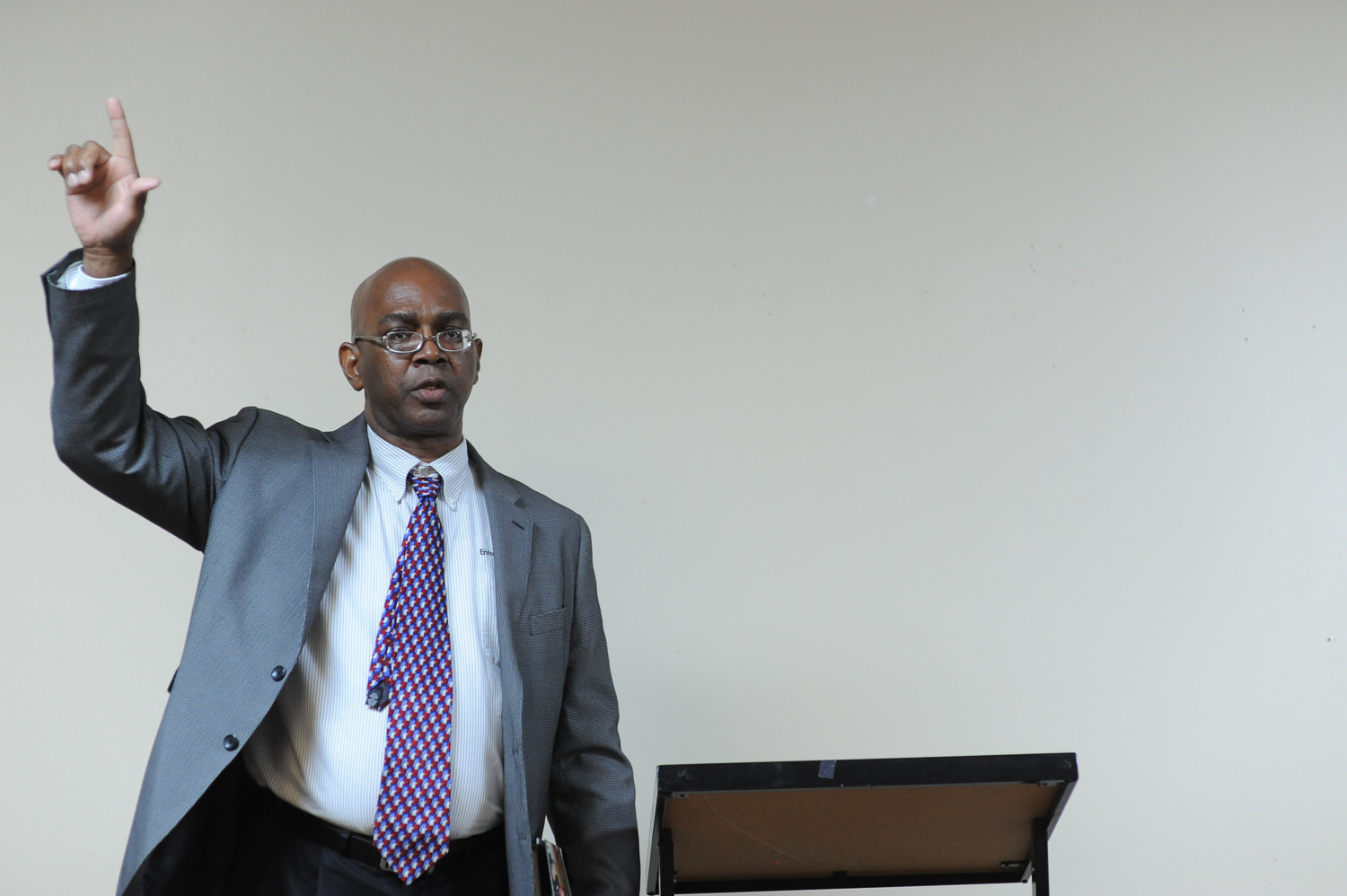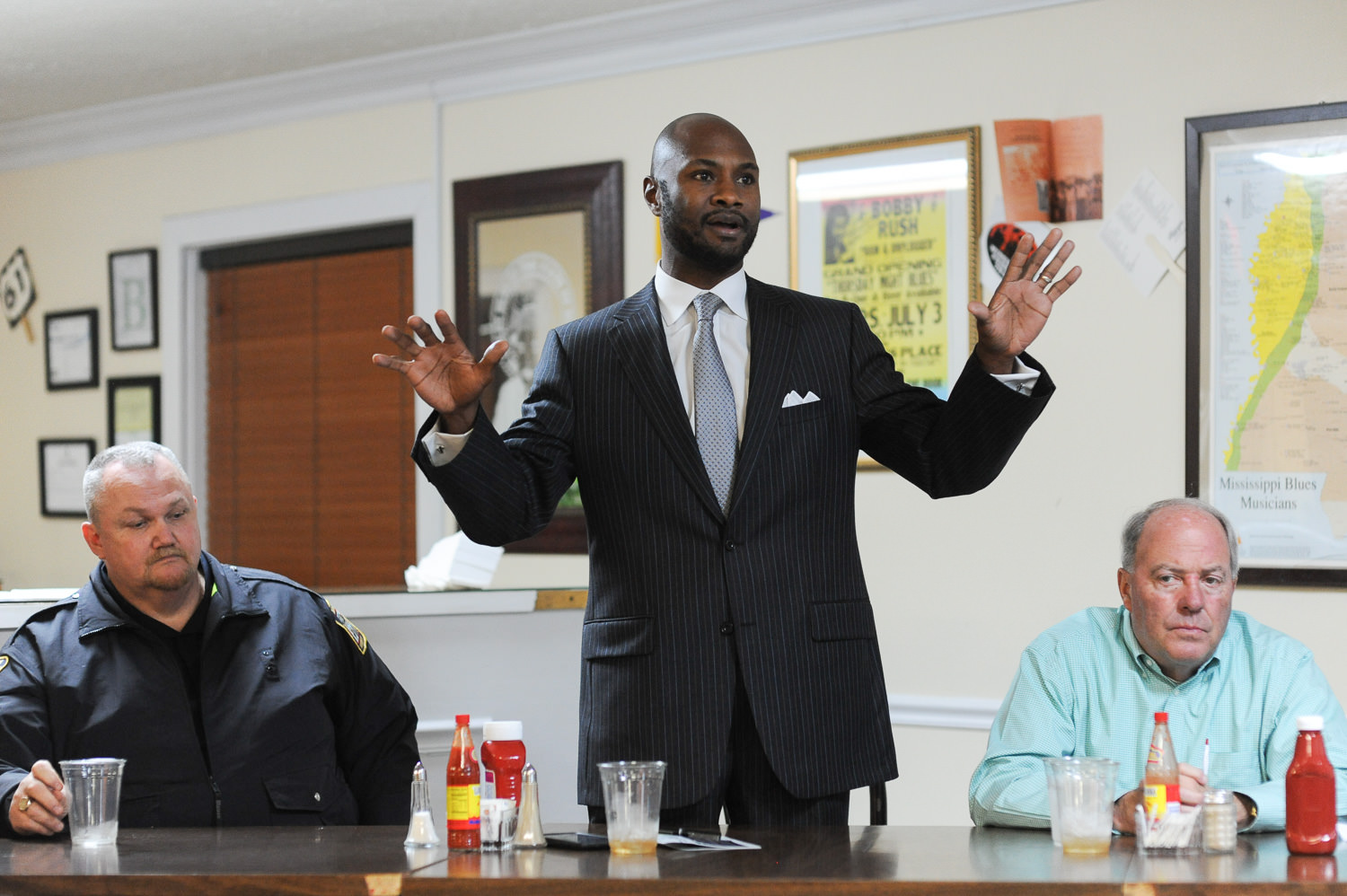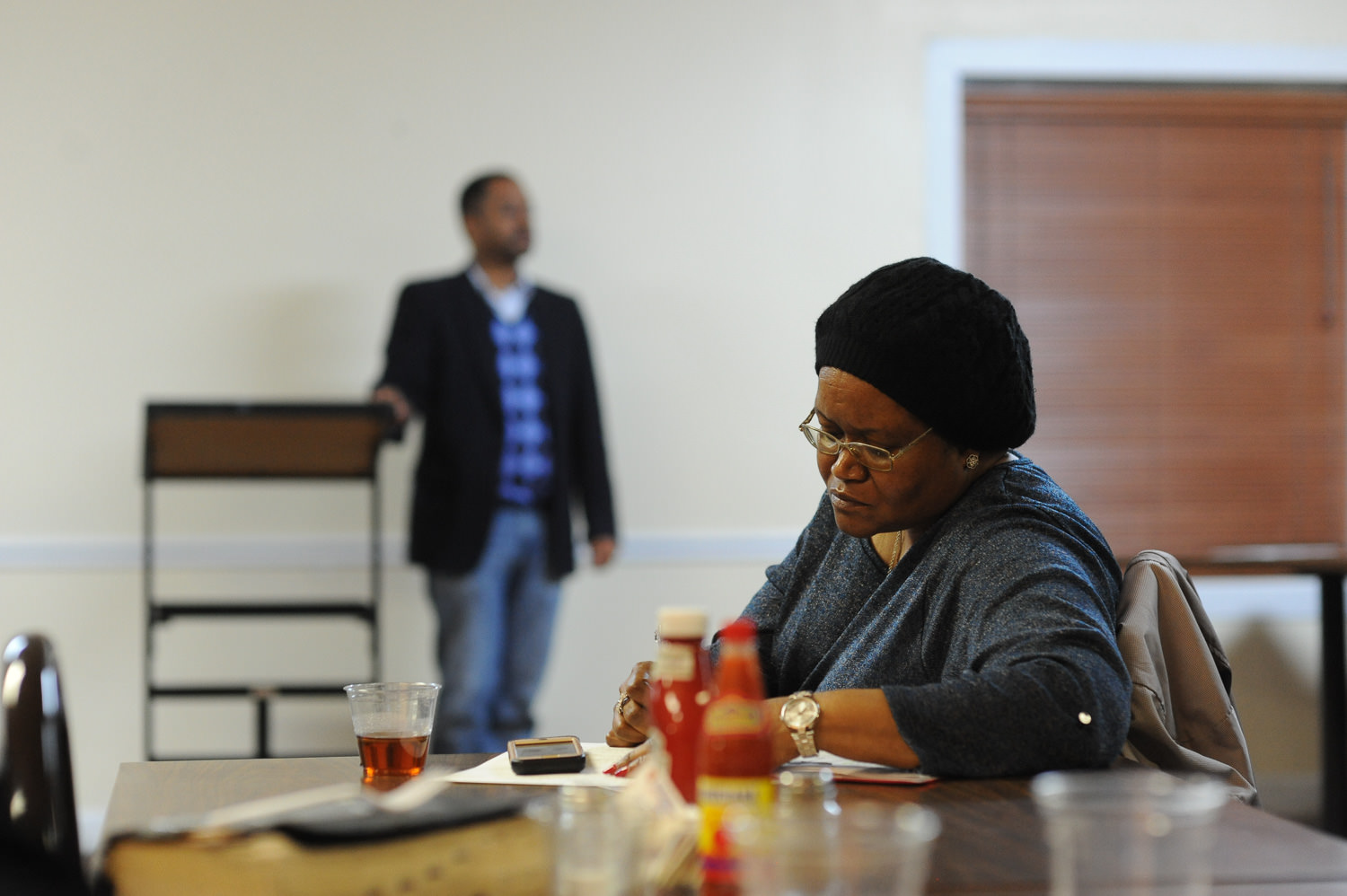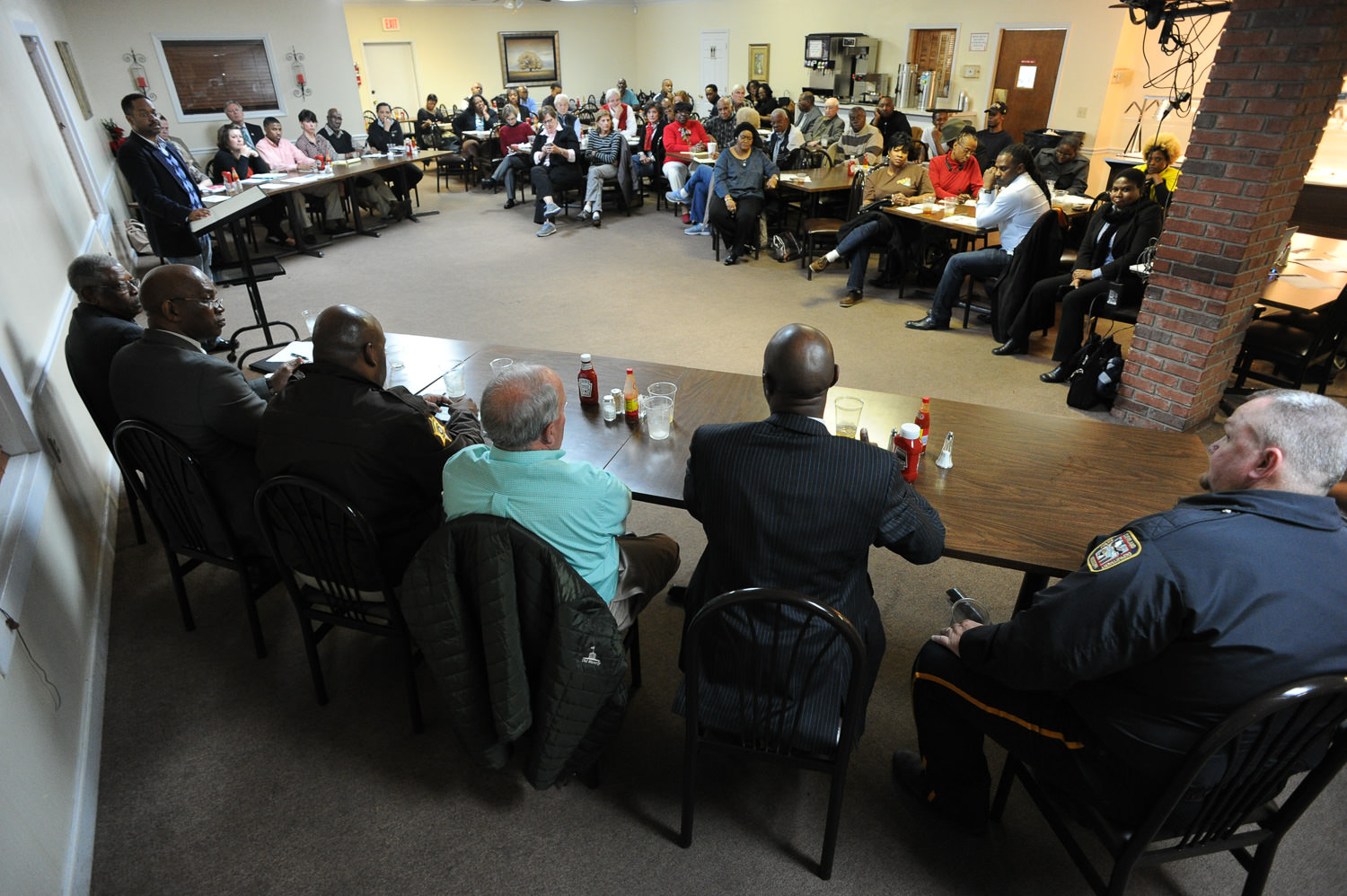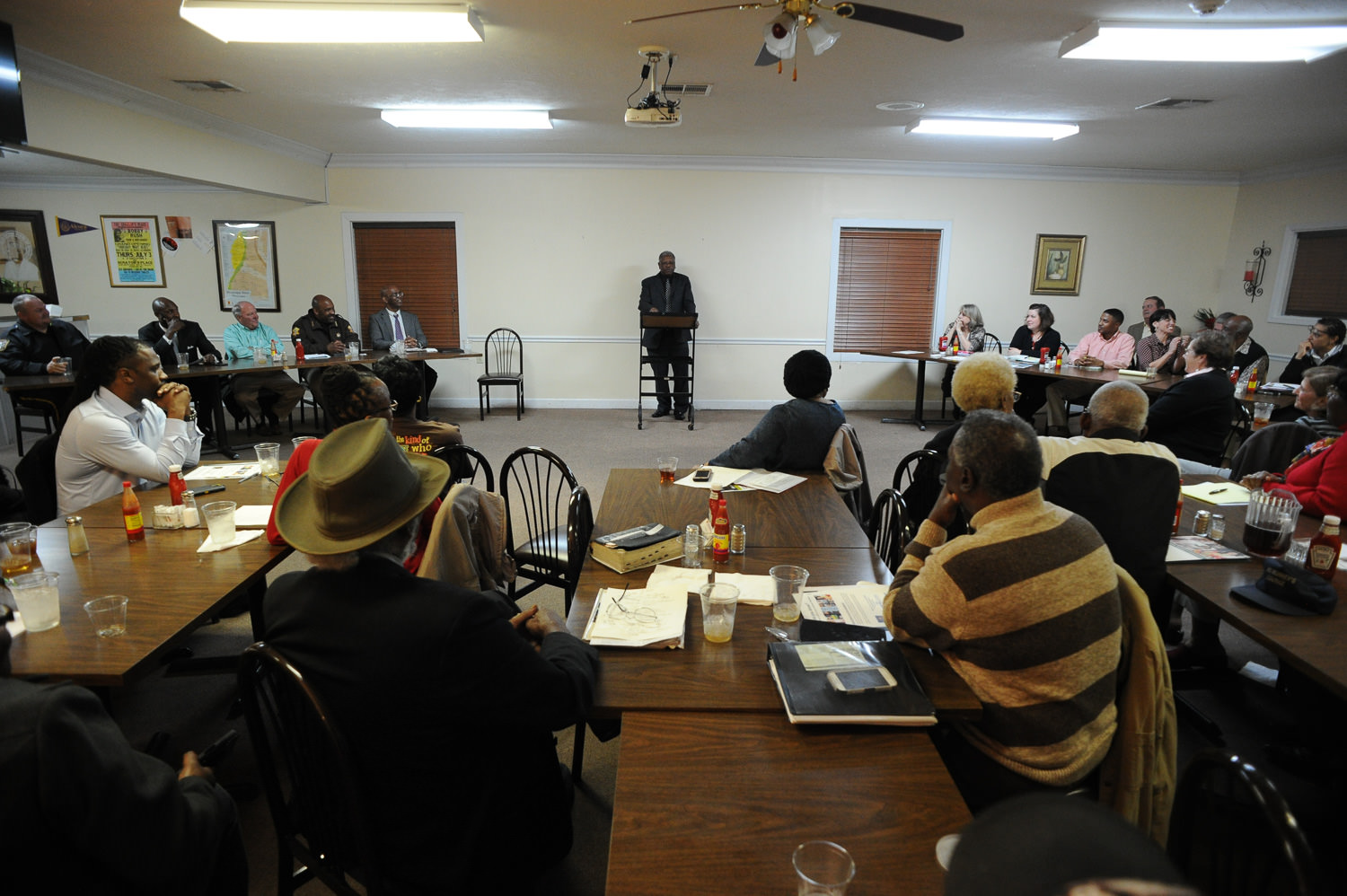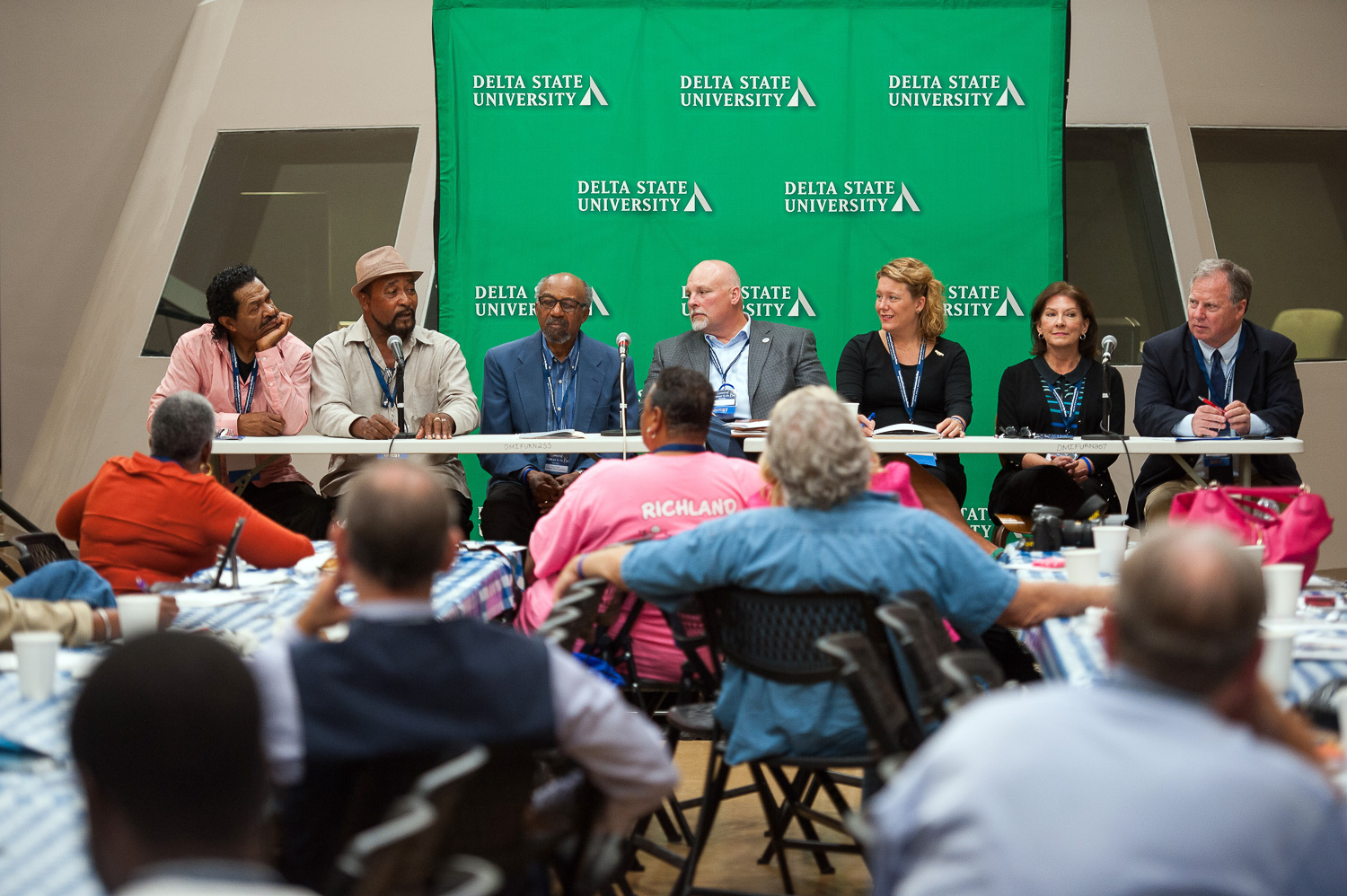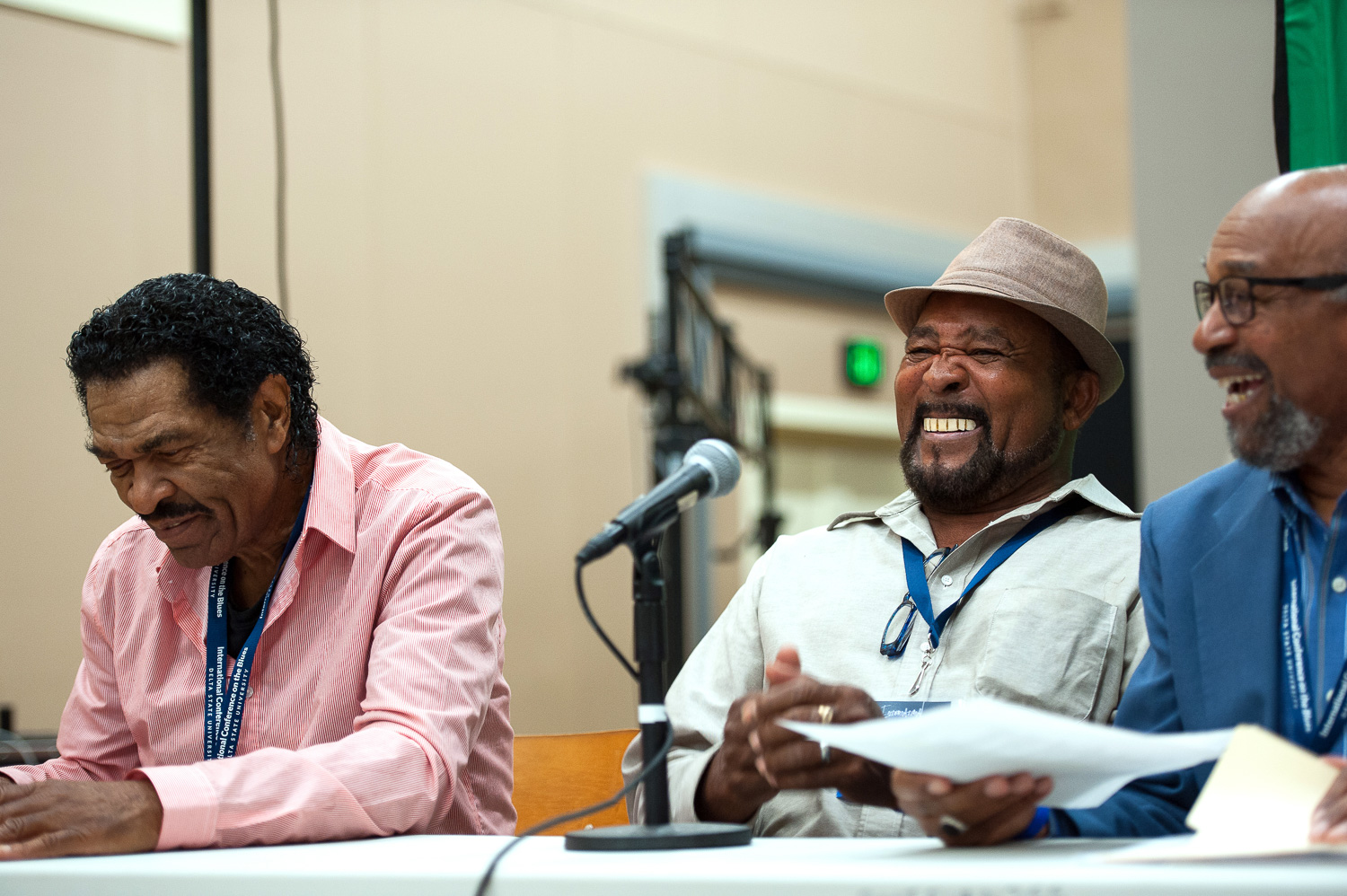A couple of months ago, while searching for materials for our summer 2017 National Endowment for the Humanities “Most Southern Place on Earth” workshops, Lee Aylward, The Delta Center’s resident maven of marvelous storytelling, happened upon a mysterious white box tucked away in the corner of our storage room in Ewing Hall.
“Though I did not recall seeing it there before, it looked oddly familiar to me,” said Lee, in her signature honeyed Southern drawl. “Something told me to pick it up and bring it downstairs to the office.”
The inside of Po’ Monkeys Lounge as seen at night clearly illustrates the transformation that occurs inside a jook joint. The Lounge is plastered with bright lights, tinsel, picture, letters, foil, and any other bright, colorful, or shiny decoration. - Kathleen Robbins, 2003
Lee and I soon discovered why the box looked so familiar to her: inside was a treasure trove of compact discs (you know, those shiny silver round plastic things that were once considered cutting-edge audio and data storage devices) from the early 2000’s, around the time that Lee started volunteering with The Delta Center as an oral history transcriber. The discs contain a plethora of Mississippi Delta voices waiting to be uploaded and shared with a brave new online world. Among those voices is a particularly iconic one: the late Willie Seaberry, better known as Po’ Monkey, proud proprietor of the legendary jook joint Po’ Monkey’s Lounge in Merigold, Mississippi.
Willie Seaberry passed away in July 2016 on a Thursday night, known as “Family Night,” a special time when locals and tourists from around the country and the world would gather at the storied establishment. As is tradition, that particular Thursday, we were taking a group of NEH “Most Southern” workshop participants and Robertson Scholars from Duke University and UNC Chapel Hill to experience the heart and soul of America’s last known rural jook house. The Delta Blues scene has not been quite the same since his unexpected passing.
Below is a transcript of a January 2003 interview with Willie Seaberry conducted by Dr. Luther Brown, the retired Founding Director of The Delta Center for Culture and Learning, and his colleague, the late Dr. Henry Outlaw who passed away in February 2015. Lee, who has been with The Delta Center nearly as long as it has been in existence, often tells visiting groups that The Delta Center was started in the year 2000 to “give the people of the Delta back their heritage.”
Mr. Seaberry standing in front of some of his collection of pictures, post cars, and other decorative items. - Kathleen Robbins, 2003
In keeping with that fundamental value, it made perfect sense to assign the task of transcribing the interview to Keith Johnson, a Mississippi Delta native who is the grand-nephew of Muddy Waters and also is a rising young Blues musician in his own right, being a recent winner of the Vicksburg Blues Challenge. Keith is a graduate assistant with the International Delta Blues Project which is housed in The Delta Center. Will Jacks, a visionary Mississippi Delta native photographer and Delta State University faculty member, also advised on the transcription process, as Keith wanted to create a video synopsis of the interview that could appeal to fellow Millennials. Will’s book on Po’ Monkey’s is being published by University of Mississippi Press soon – be sure to check out his photo essay published in Mississippi Arts Commission’s Mississippi Folklife about it.
As the old saying goes, no one works alone. That was the case with The Delta Center then as it is now. Dr. Brown worked with Willie Seaberry and Dr. Outlaw on this interview. He also engaged photographer Kathleen Robbins, a faculty member in Delta State’s art department at the time, and Suli Yi, a journalist at Voice for America, to capture images and video before the interview was conducted. Kathleen and Suli’s artful contributions are featured in Dr. Brown’s essay “Inside Poor Monkey’s” published by the journal Southern Spaces in 2006.
I shared the interview transcript with Dr. Brown before it was posted here. This was his response:
I had forgotten that Monkey was so talkative this time. We tried interviewing him a couple of other times and he just wouldn’t talk to the tape recorder. Several things did come out of this interview, but we never completed the multi-author article. I believe Kathleen left DSU [Delta State University] and took another job shortly after the interview, and we just never got back to the project. I wrote an article for Southern Spaces – better check the date though because I don’t remember if it was before or after the interview. We did produce the posters featuring Kathleen’s photos. Those photos are talked about in the interview, and it sounds like they were taken just prior.
We also succeeded in getting a Blues Trail historic marker for [Po’] Monkey’s, and the planning for that would have begun around the interview time, although installation might have been later. In any case, that marker was one of the first set of markers, so it was installed not too long after this interview. We also got 2003 declared the Year of the Blues in Mississippi, by Governor Musgrove, who is also mentioned in the interview. I think we took him to Monkey’s after he came over to our house for dinner, when we discussed him proclaiming the Year of the Blues.
Another consequence of this interview is that the Bolivar County Supervisors did change the name of the road to “Po’ Monkey’s Road.” They also then paved a bit of the road on the west side of Monkey’s so that tour buses could come (many bus companies refused to drive on unpaved roads). There were once road signs, but so many of them were stolen that the County stopped putting them up. The [Delta] Center produced metal road signs and sold them to visitors at one time.
Dr. Brown also shared with me that this recording was not meant to be treated as an oral history. He said it is “more like a fact finding interview that we were using in preparation for writing and talking about Monkey and his Lounge.”
It is in this spirit that The Delta Center makes this rare recording available to the general public, particularly for researchers, writers, Blues enthusiasts, students, music and cultural critics, fans of the Mississippi Delta National Heritage Area, and anyone else who may be searching for something that might have seemed lost but was there all along, waiting to be discovered and shared.
Yes, this is for you – for all of you: the found voice of Willie “Po’ Monkey” Seaberry.
- Dr. Rolando Herts, Director, The Delta Center for Culture and Learning
Monday, May 22, 2017
